Headlines
- US tariffs of 10% to 50% on Chinese home furnishings, furniture, and lumber became effective. China retaliated by sanctioning five US-based subsidiaries of a South Korean shipping company and imposing new port fees on American cargo ships.
- A Trump representative says a Trump - Xi meeting is still "scheduled," but President Trump later says China's committing "Economically hostile act" against US soybean farmers. He further threatened China over cooking oil embargo.
- Federal Reserve Chair Jerome Powell said the central bank is nearing a point where it will stop reducing the size of its bond holdings, but gave no long-run indication of where interest rates are heading.
- The European Union’s trade chief labeled China’s export controls a “critical issue,” signaling escalating trade tensions between the EU and China.
- The US government shutdown entered its fourteenth day, delaying the publication of official economic data.
Global Economics
United States
- US small business optimism fell for the first time in three months, missing expectations (act: 98.8, est: 100.5).
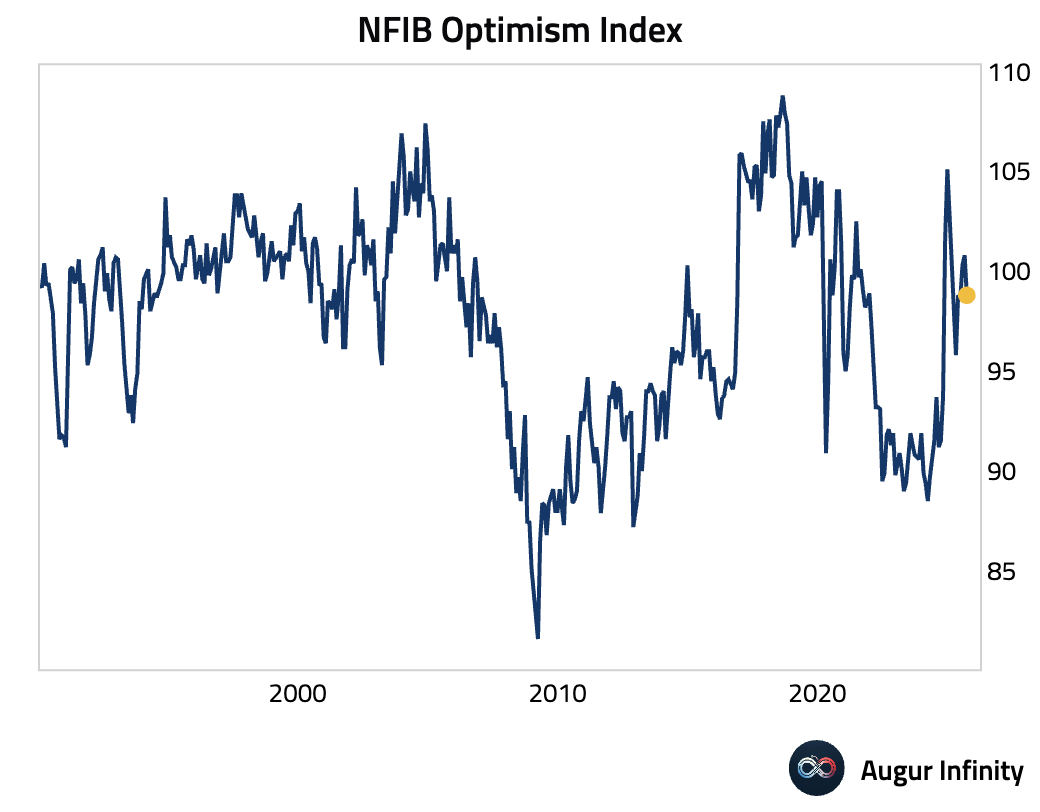
Current job openings declined …
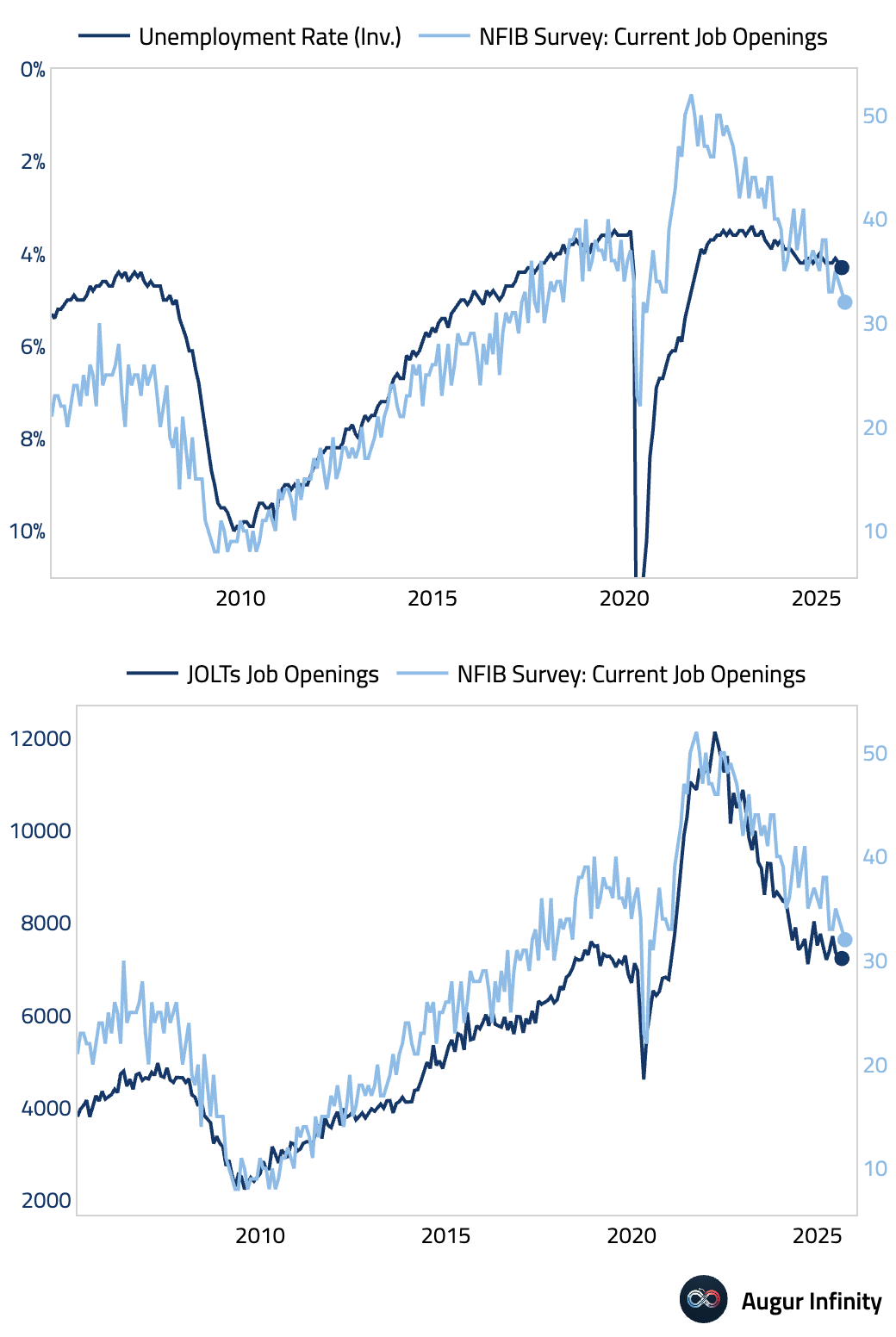
… although employment plans did improve.
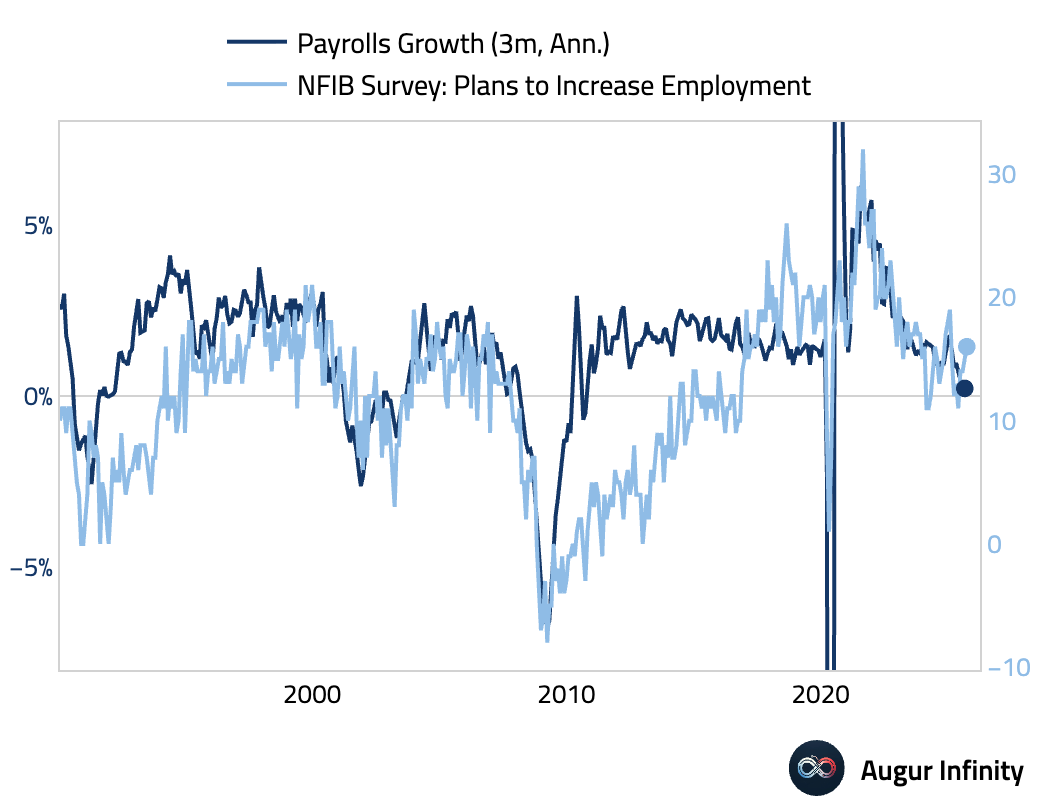
Inflationary pressures reaccelerated, with price plans rising.
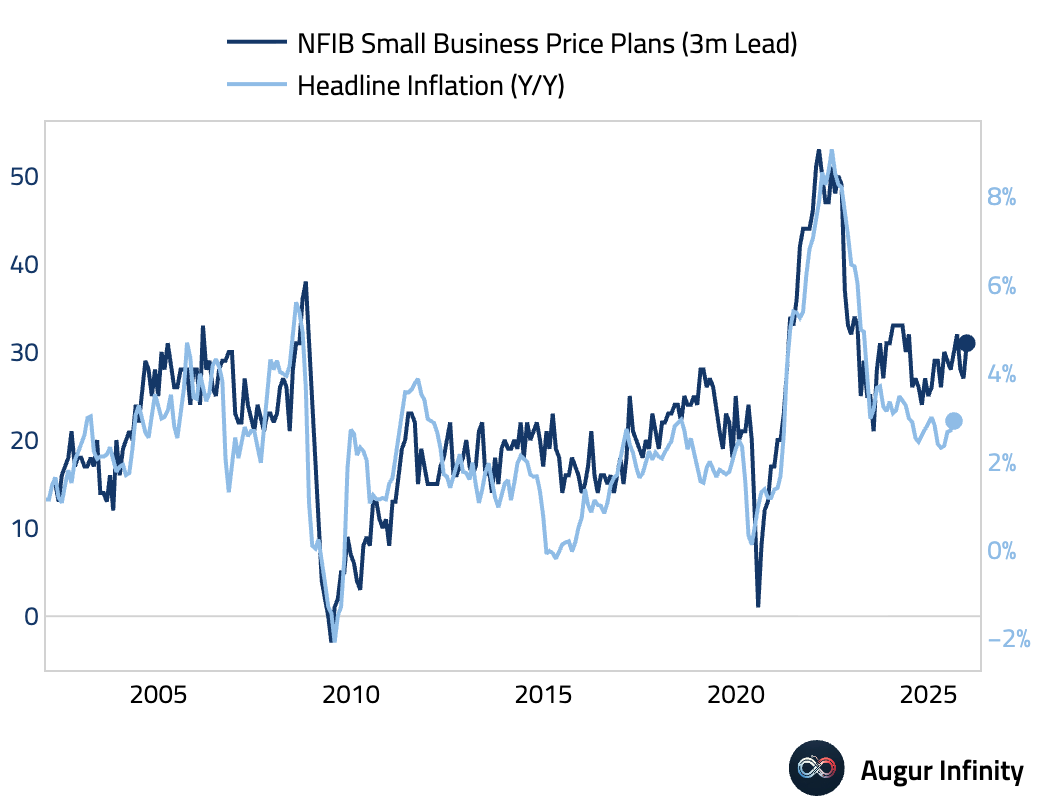
The Uncertainty Index surged to the fourth-highest reading in 51 years.
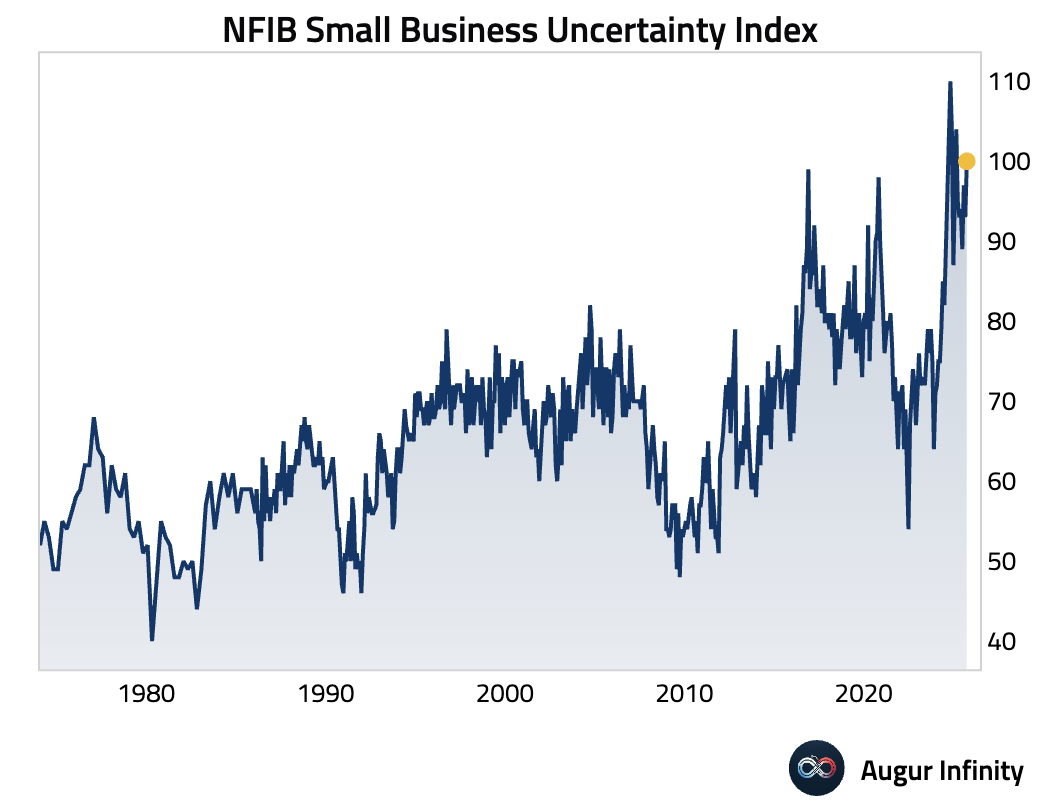
- The Redbook index of US retail sales growth edged higher.
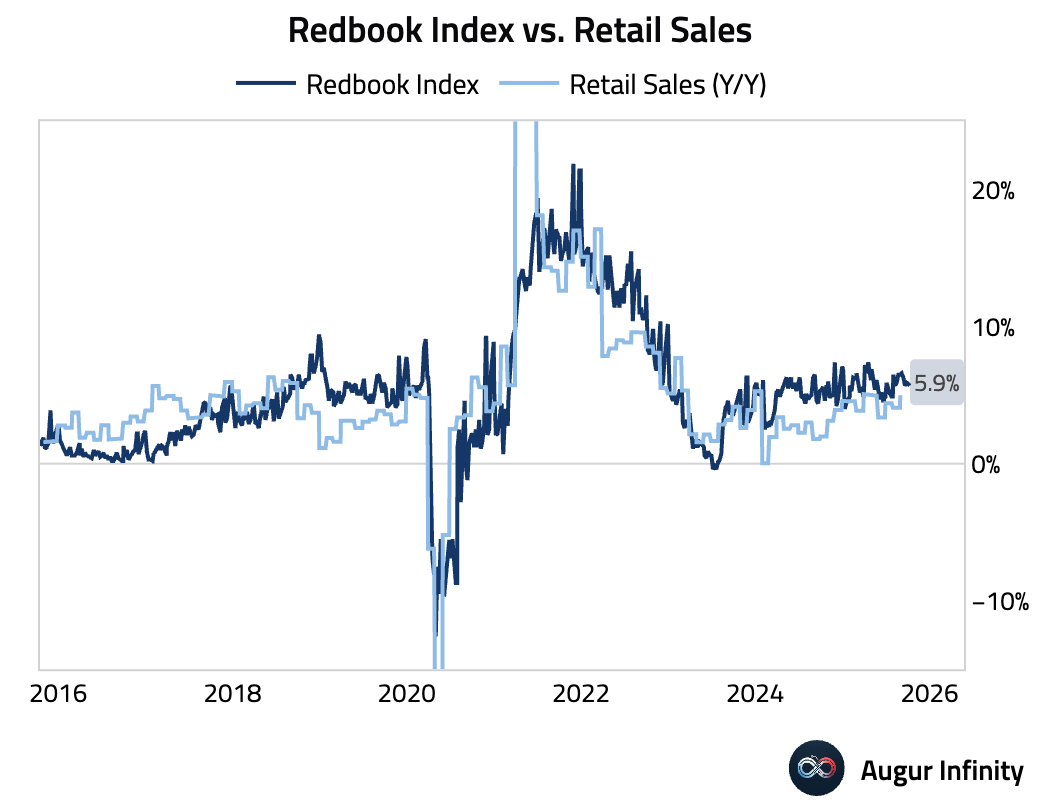
- According to Cass Freight Indices, Shipments rose 1.5% M/M, driven by a temporary bump in truckload volumes from pre-tariff shipping. Expenditures rose 5.1% M/M, driven by higher freight rates more than offsetting still-weak shipment volumes.
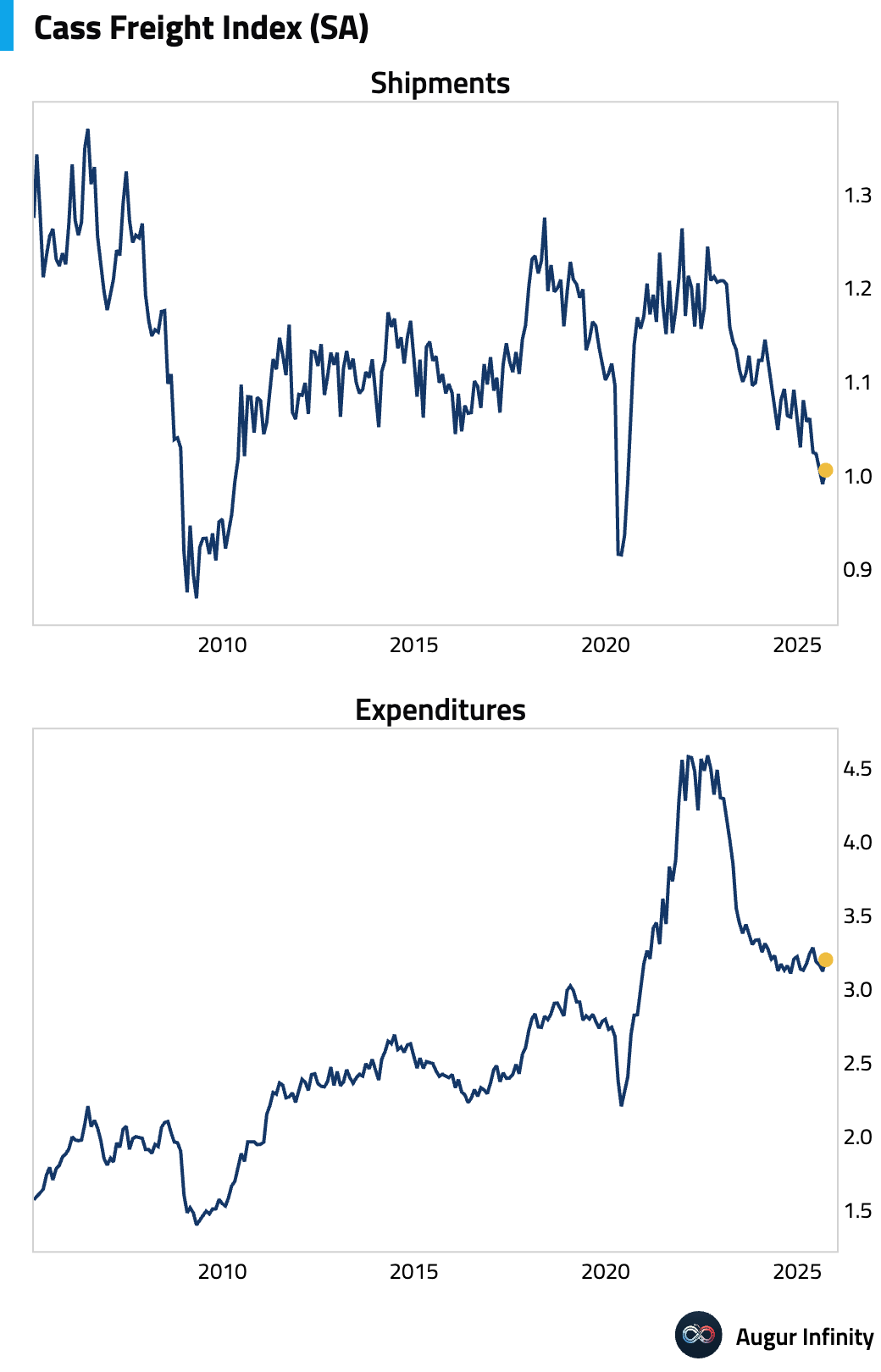
Source: Cass Information Systems, Inc.
Canada
- Canadian building permits fell for a second consecutive month in August, declining more than expected (act: -1.2% M/M, est: -0.1%).
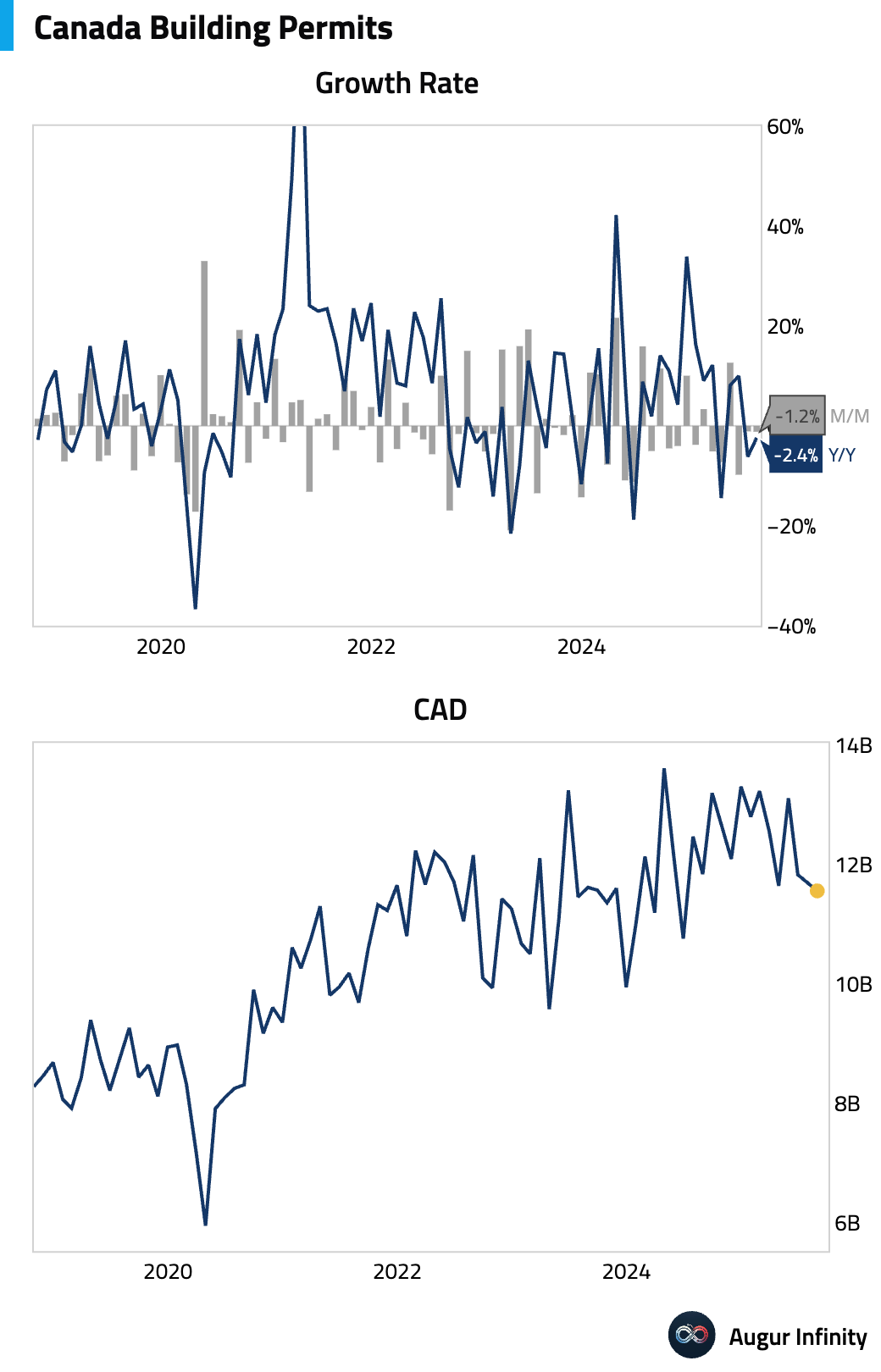
Europe
- Eurozone economic sentiment declined in October, missing expectations as investor optimism waned (act: 22.7, est: 30.2).
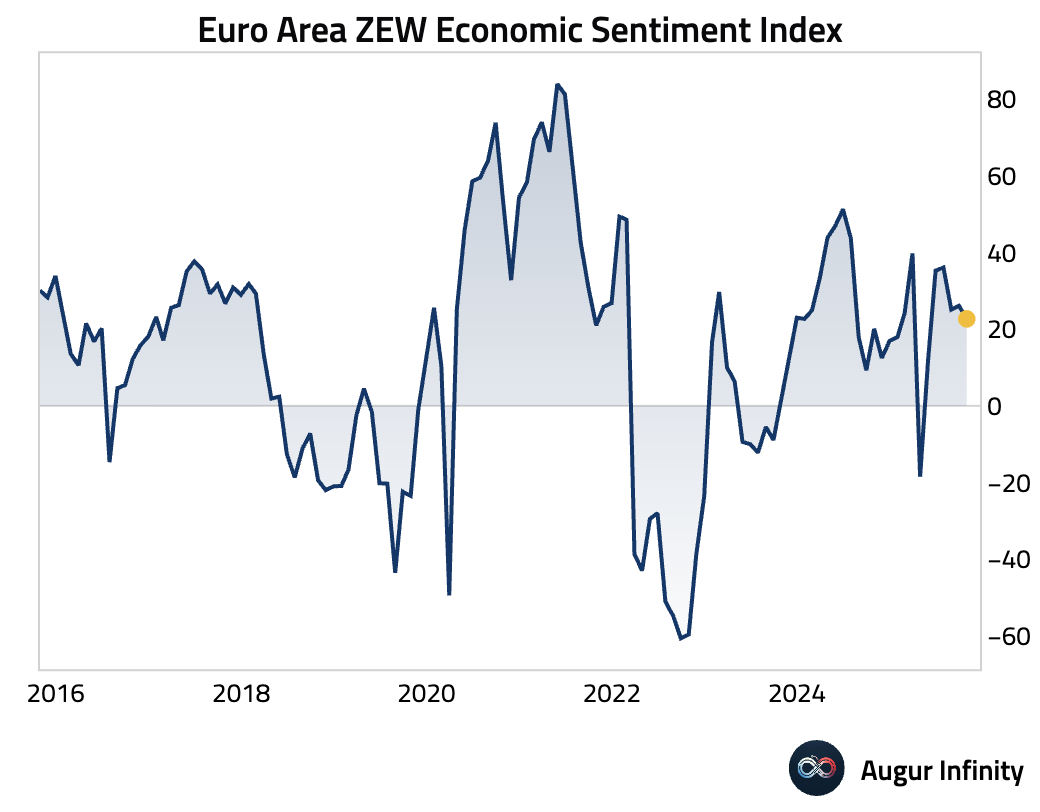
- German ZEW investor sentiment improved in October but missed consensus estimates, while the assessment of current conditions deteriorated more than expected.
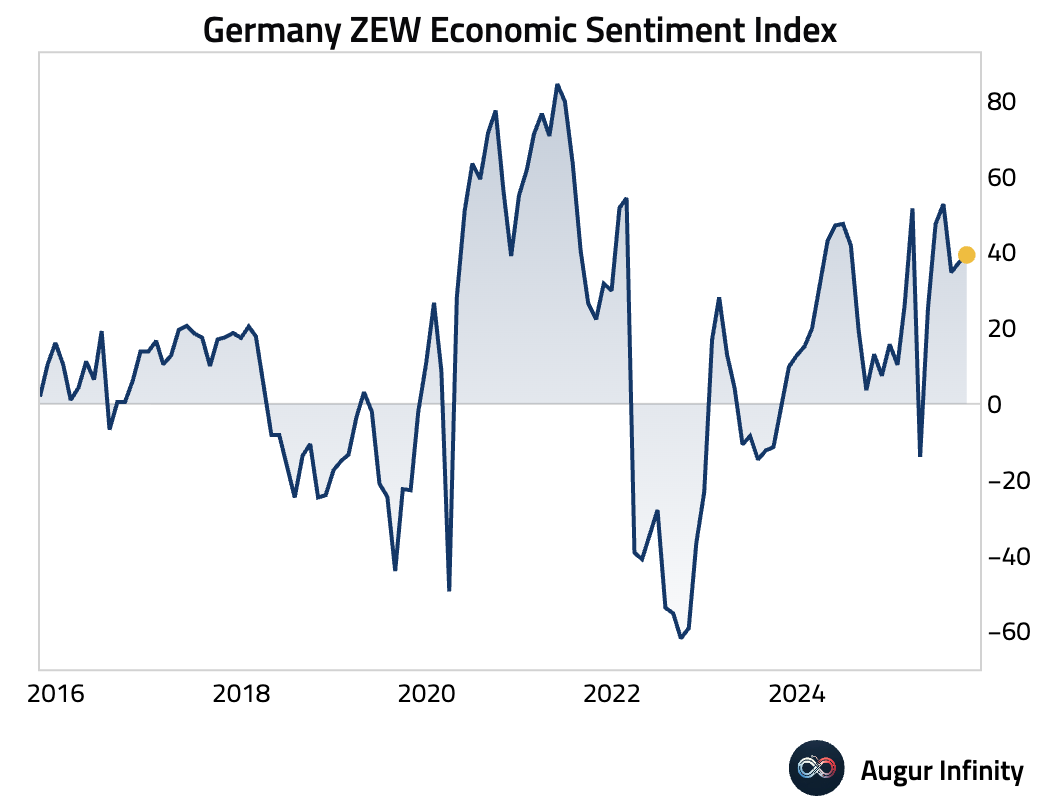
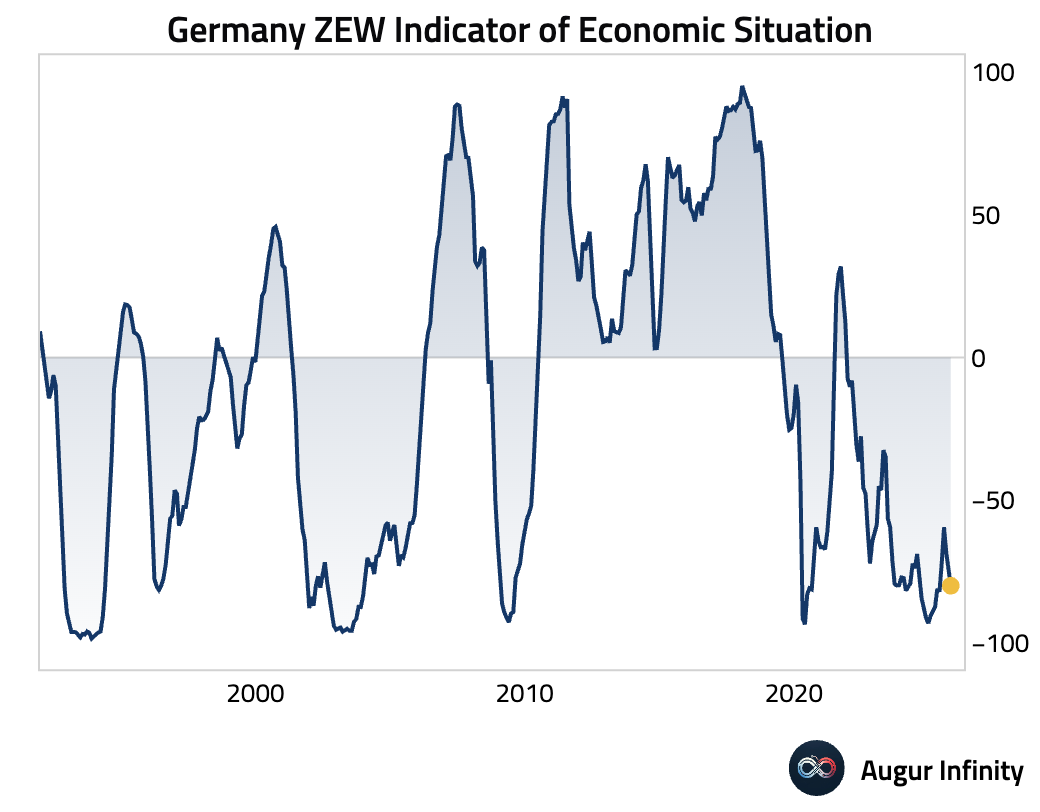
- German headline inflation for September was confirmed at 2.4% Y/Y, up from 2.2% in August, with prices rising 0.2% M/M.
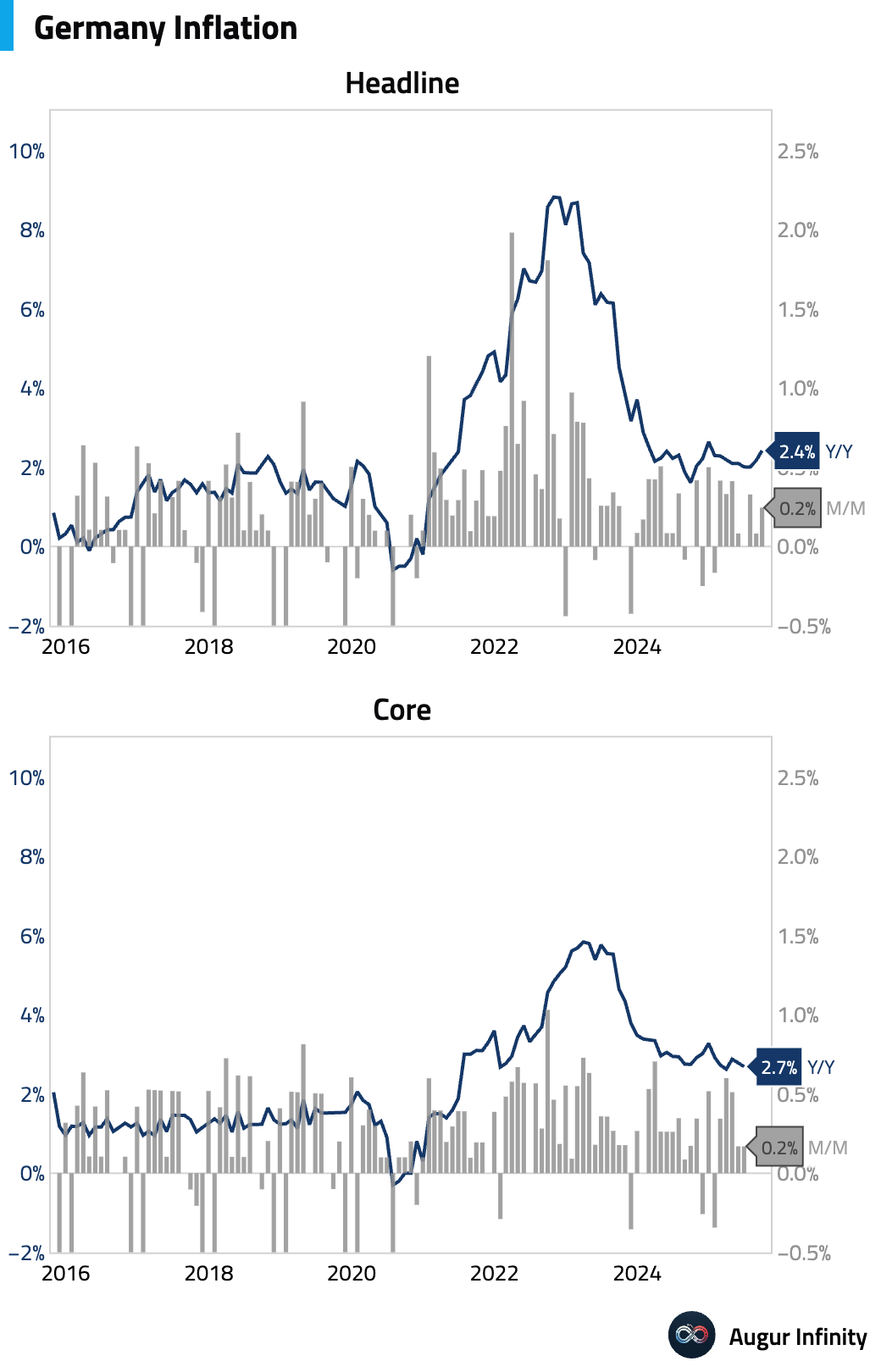
- The UK unemployment rate unexpectedly rose to 4.8% in the three months to August, a significant surprise above the 4.7% consensus and its highest level since February 2021.
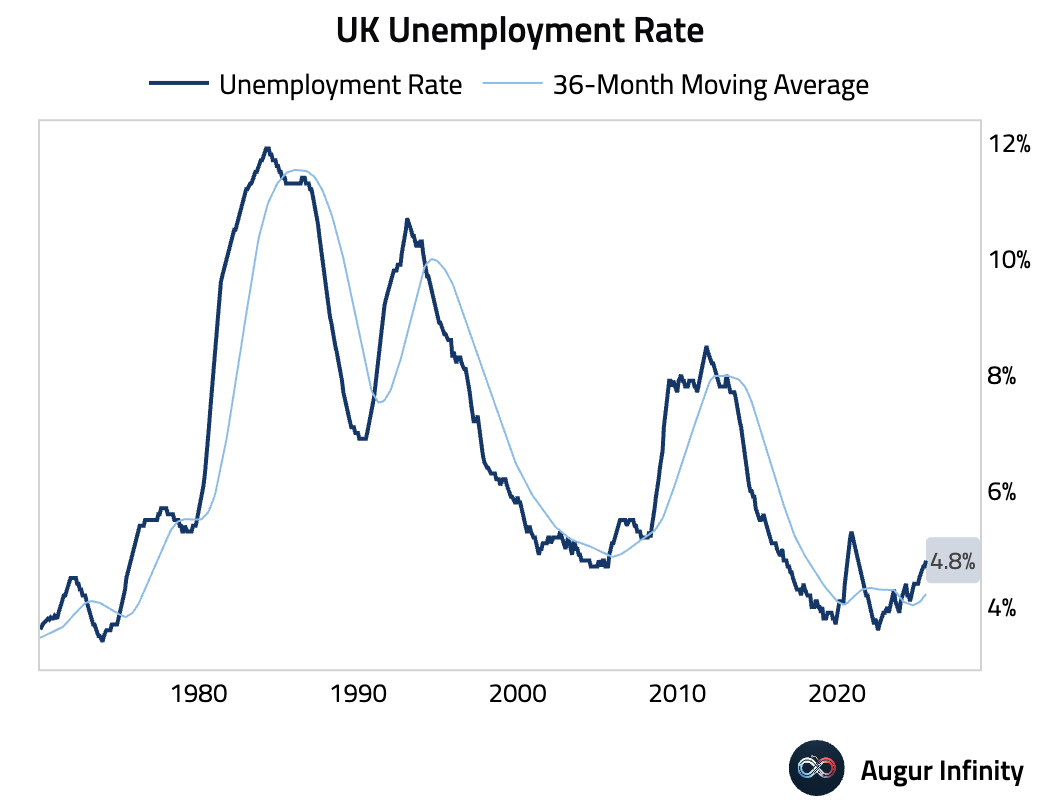
The more timely HMRC payrolls data showed a decline in employees for September, though the prior month’s figure was revised sharply higher to a gain from a loss.
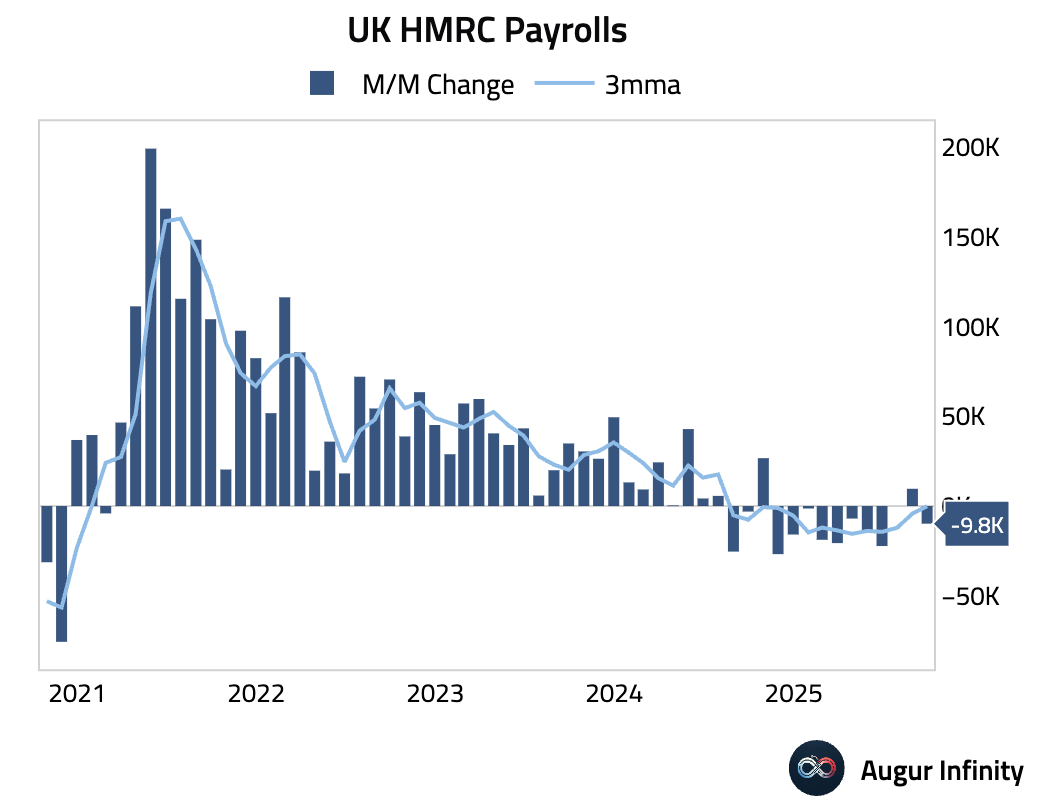
Jobless claims in the UK rose significantly more than expected in September (act: 25.8k, est: 10.3k).
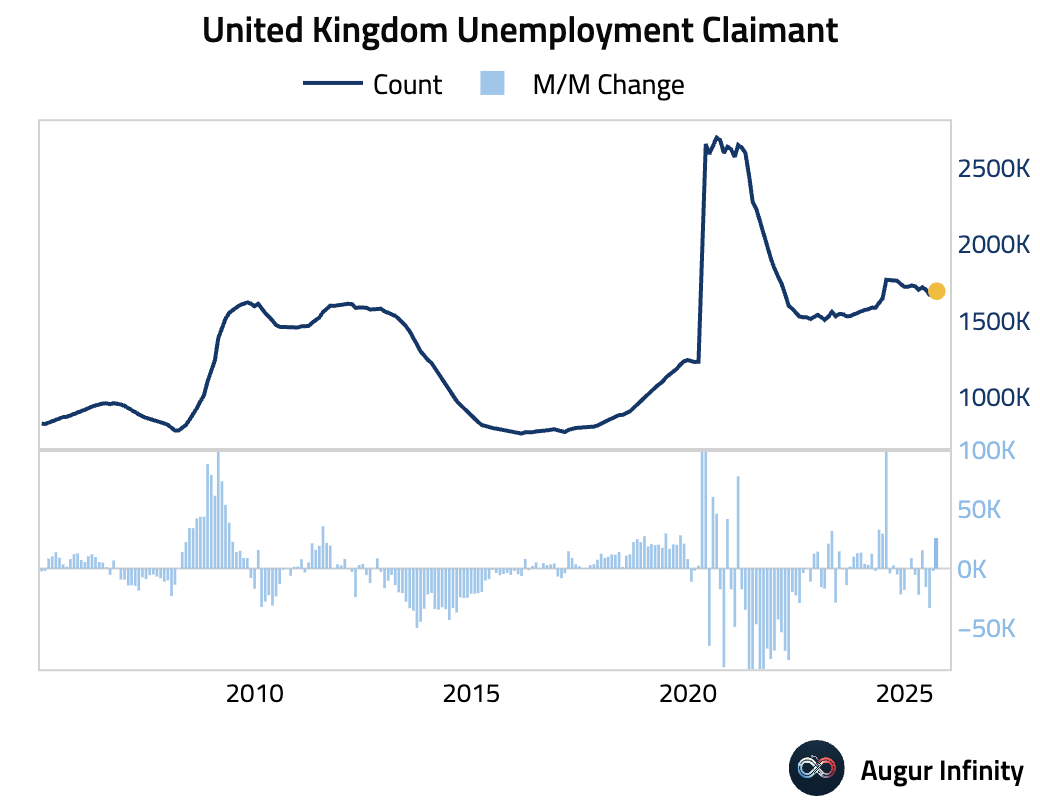
- UK wage growth accelerated to 5.0% Y/Y including bonuses but decelerated to 4.7% Y/Y excluding bonuses.
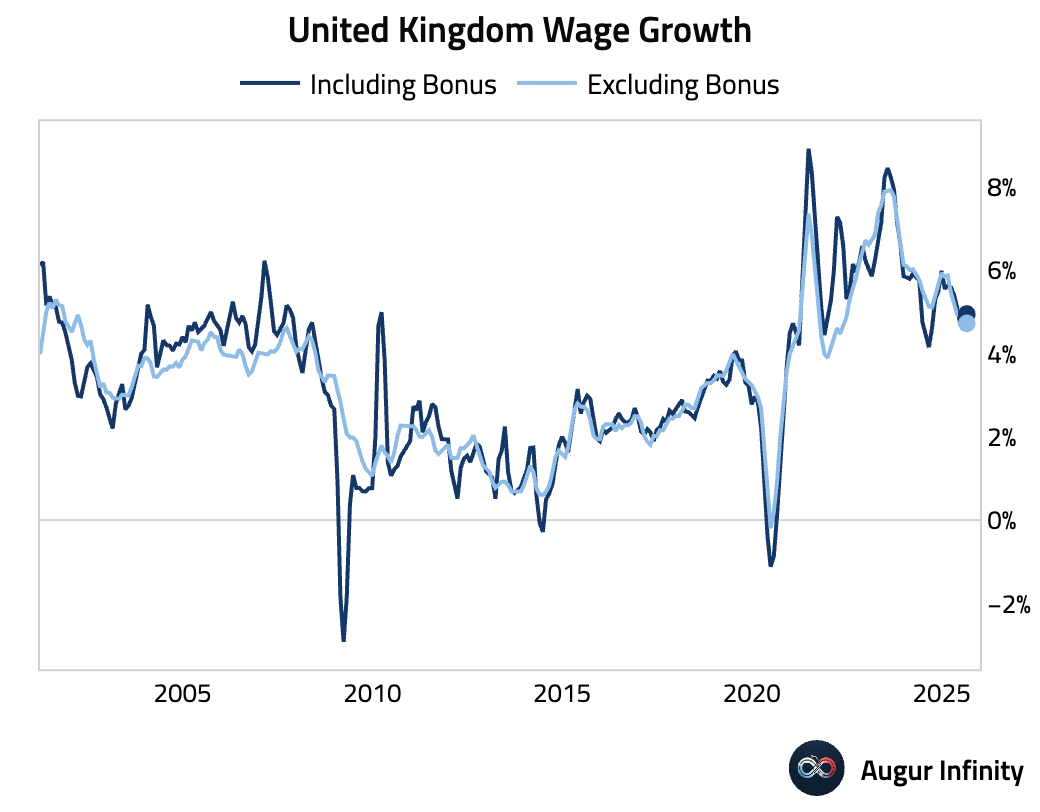
- UK retail sales growth slowed in September, falling short of consensus expectations (act: 2.0% Y/Y, est: 2.5%). The slowdown was driven by unseasonably warm weather, which delayed purchases of autumn and winter clothing, and increasing caution from consumers amid high food inflation.
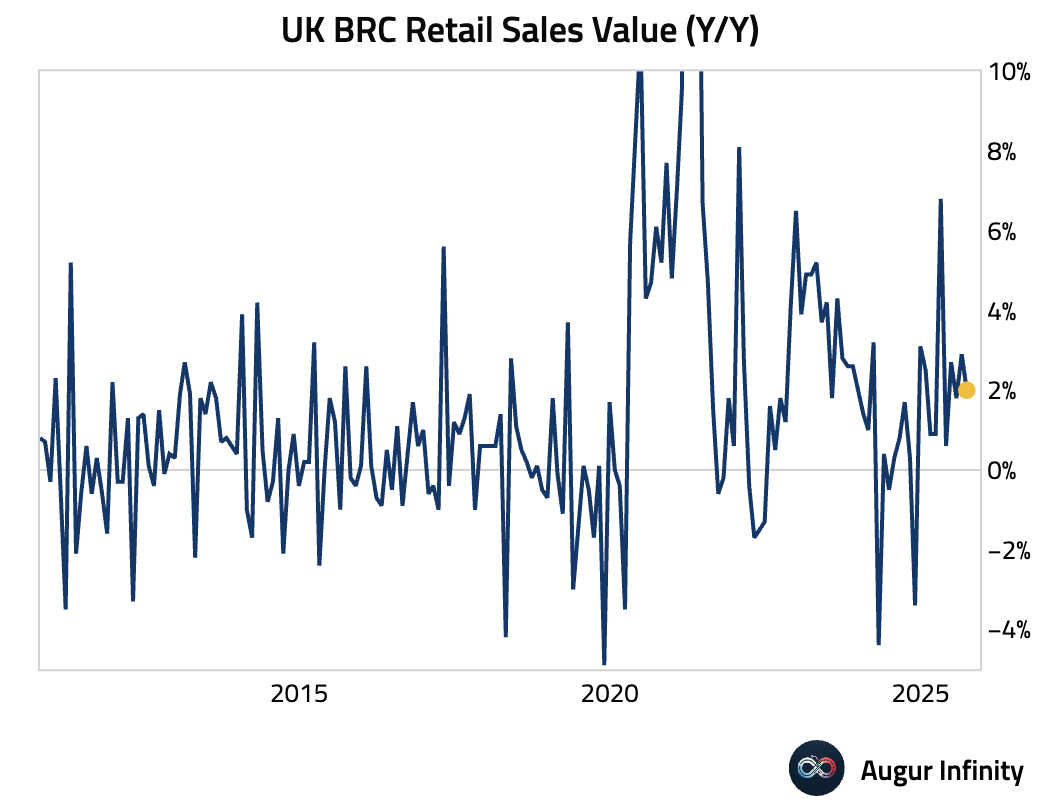
Source: British Retail Consortium
- Swiss producer and import prices declined month-over-month in September, while the annual deflation rate held steady.
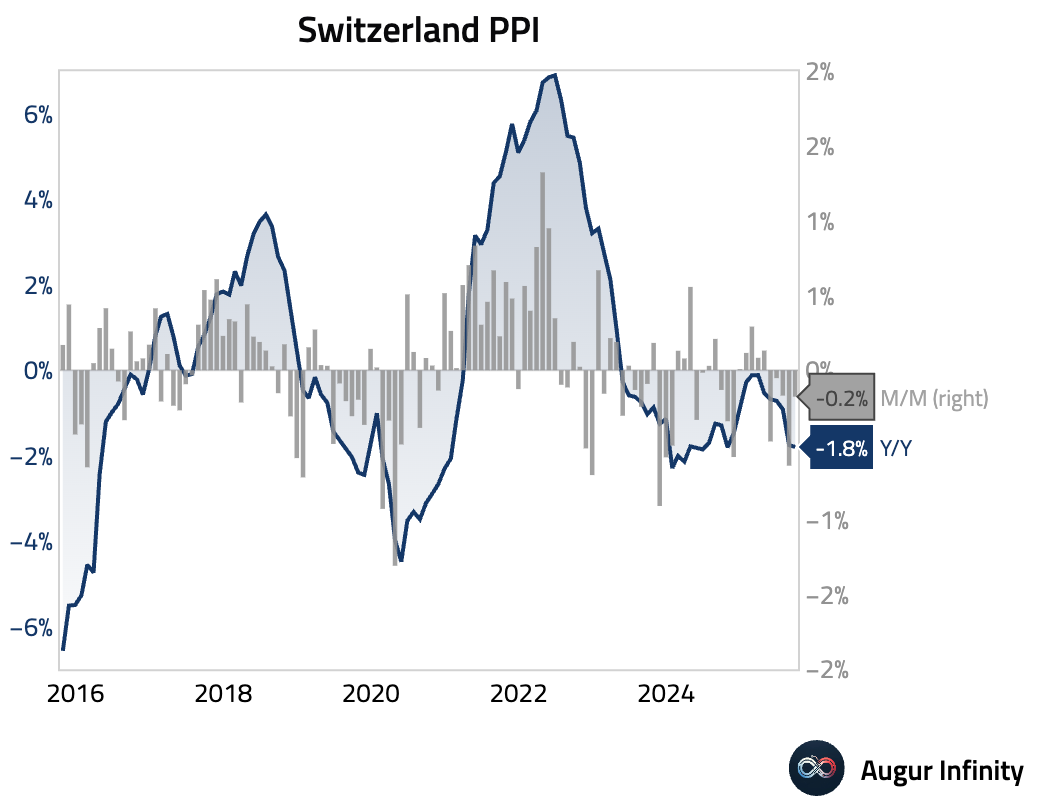
Asia-Pacific
- Japan’s main opposition parties are weighing the possibility of rallying behind Yuichiro Tamaki as a unified candidate to take on Sanae Takaichi in a parliamentary vote.

Source: Bloomberg
- Australian business confidence improved in September (act: 7, prev: 4) …
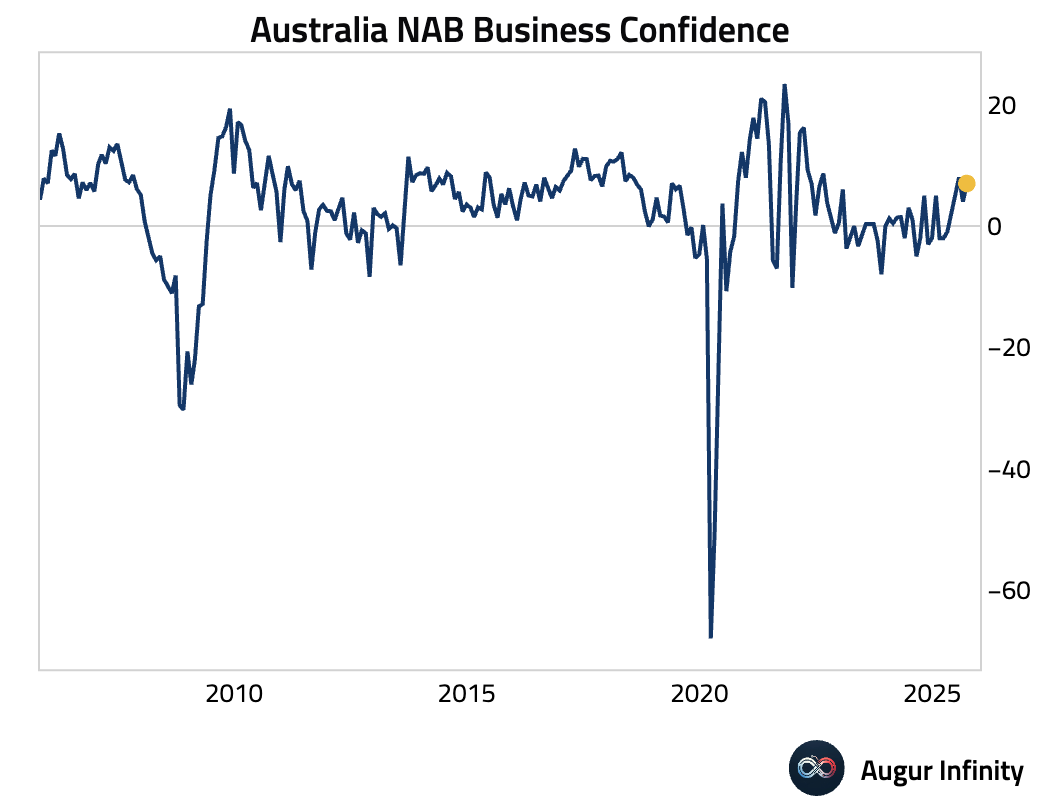
… while capacity utilization rose to the highest level in over a year.
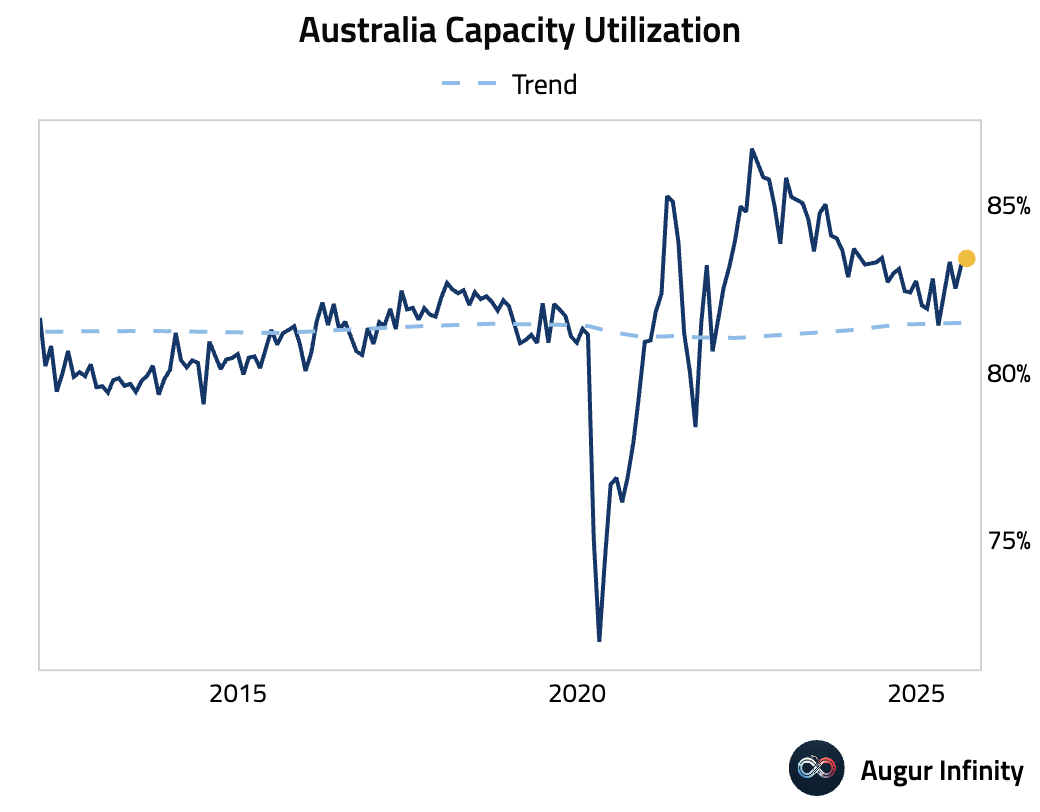
- Singapore’s advance estimate showed the economy grew 2.9% Y/Y and 1.3% Q/Q (or 5.3% annualized) in the third quarter, beating consensus forecasts. The upside surprise was driven by a strong rebound in manufacturing, which offset weaker services growth. The resilient data prompted the Monetary Authority of Singapore (MAS) to keep its policy unchanged, looking through near-term softness in core inflation.
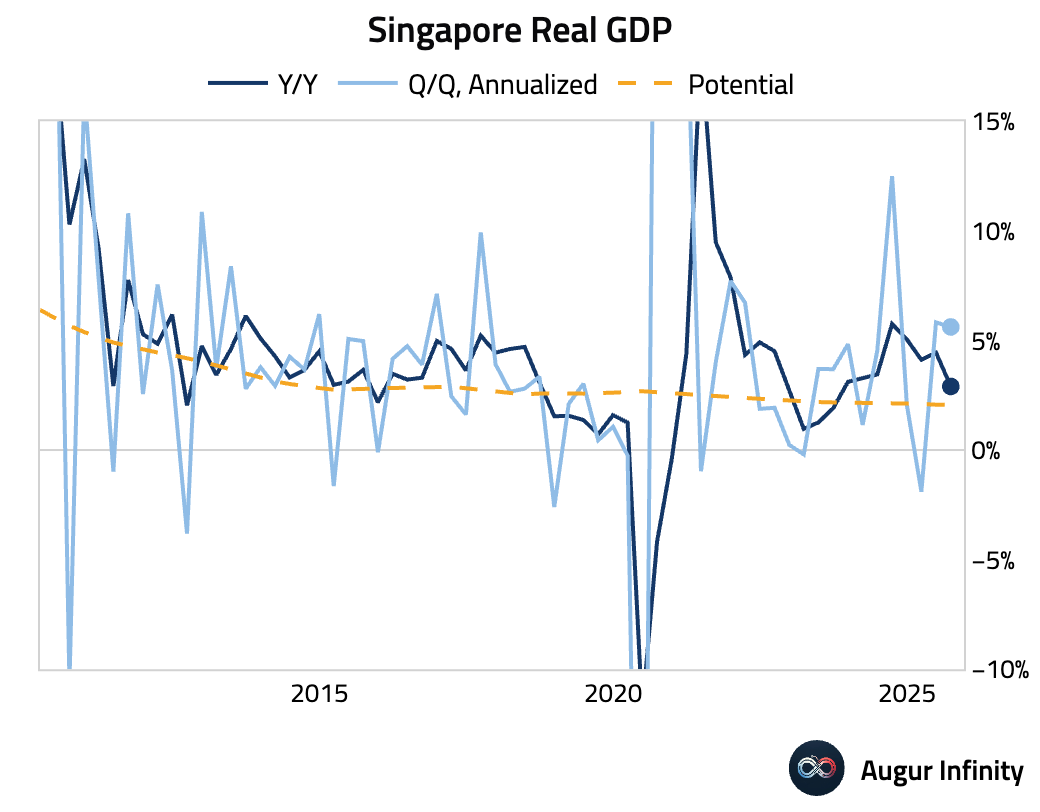
- New Zealand’s electronic retail card spending fell month-over-month but rose on an annual basis.
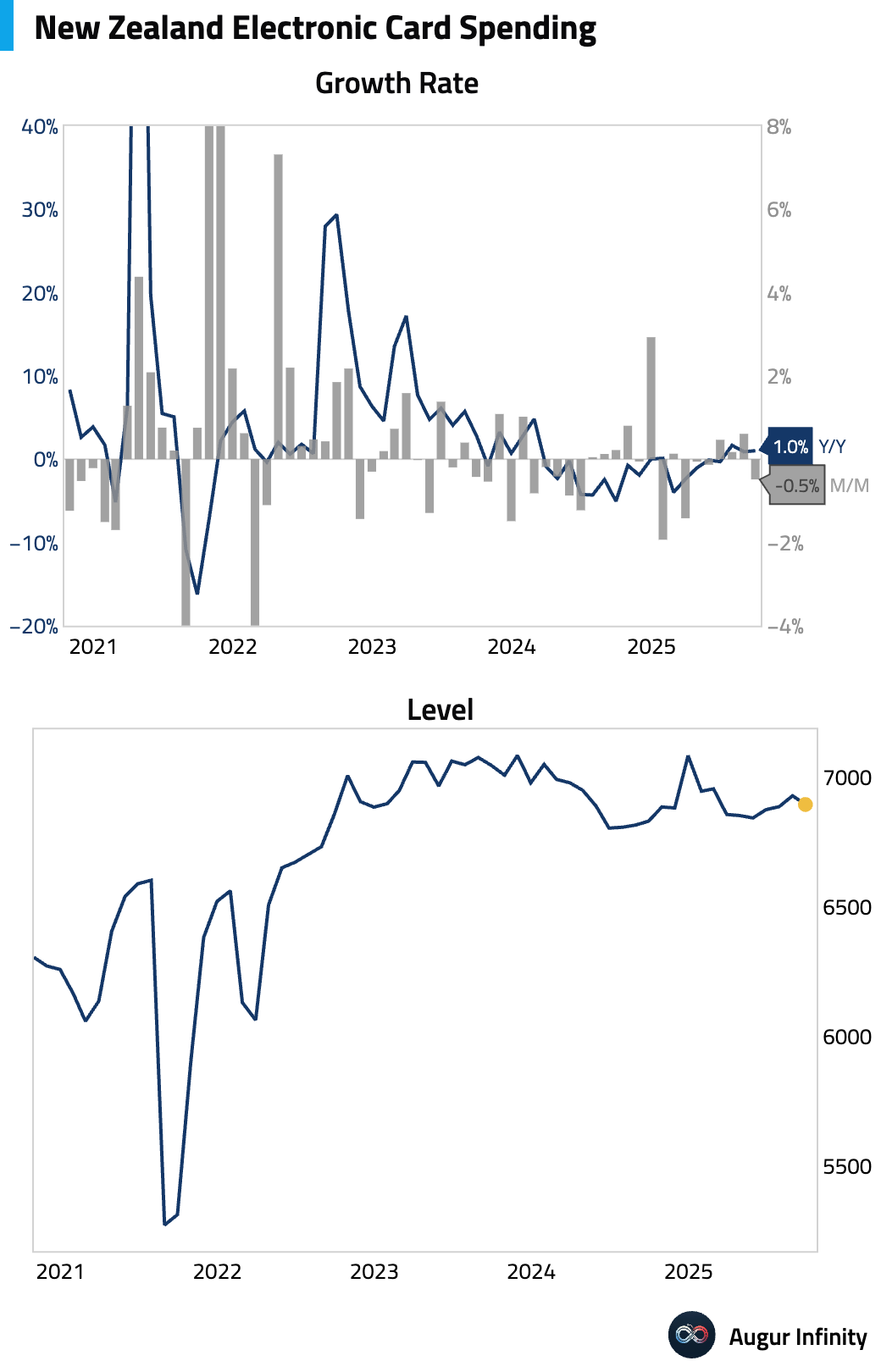
China
- Chinese vehicle sales growth slowed in September but remained robust (act: 14.9% Y/Y, prev: 16.4%).

Emerging Markets ex China
- India’s Wholesale Price Index (WPI) inflation decelerated sharply to 0.13% Y/Y in September, well below the 0.5% consensus and down from 0.52% in August. The slowdown was driven by a deeper contraction in food prices and easing manufacturing inflation.
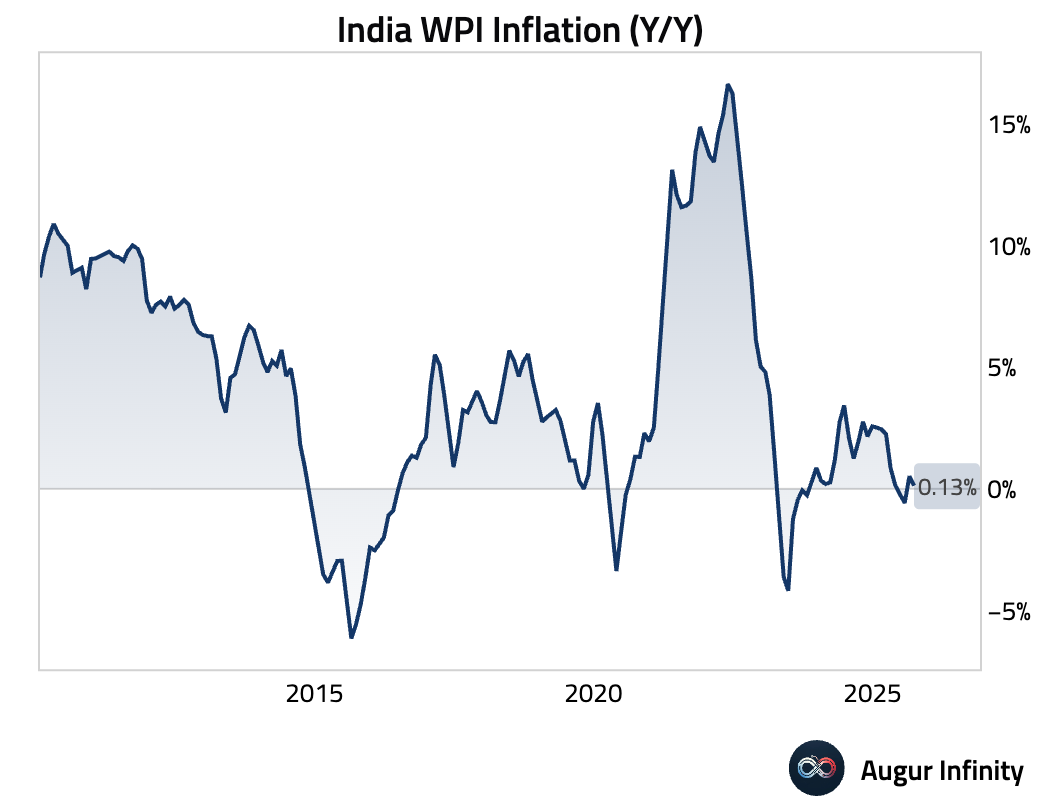
- Hungarian construction output contracted sharply on an annual basis in August (act: -15.2% Y/Y, prev: 4.9%).
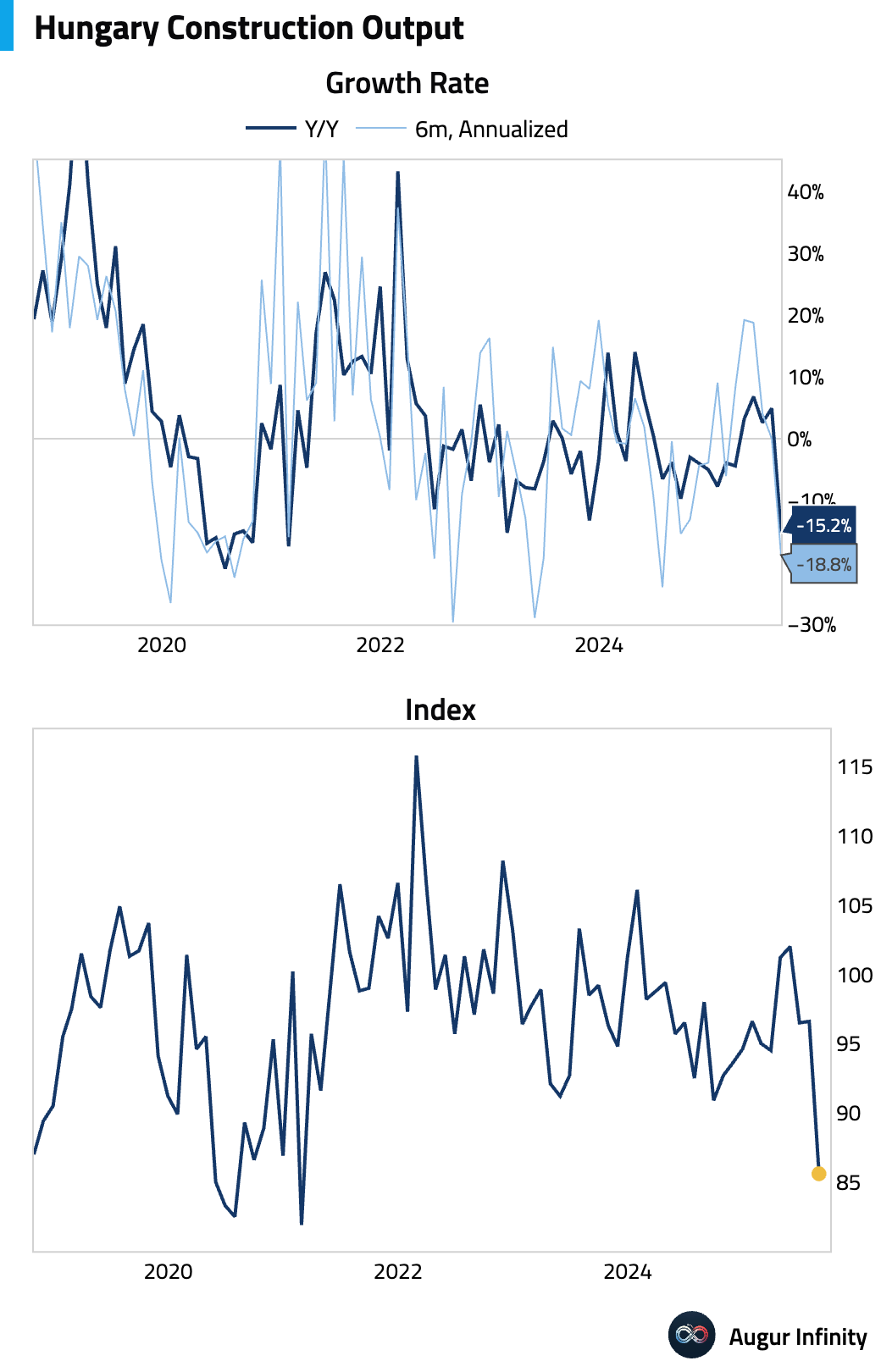
The final reading for Hungarian industrial production confirmed a deep contraction in August.
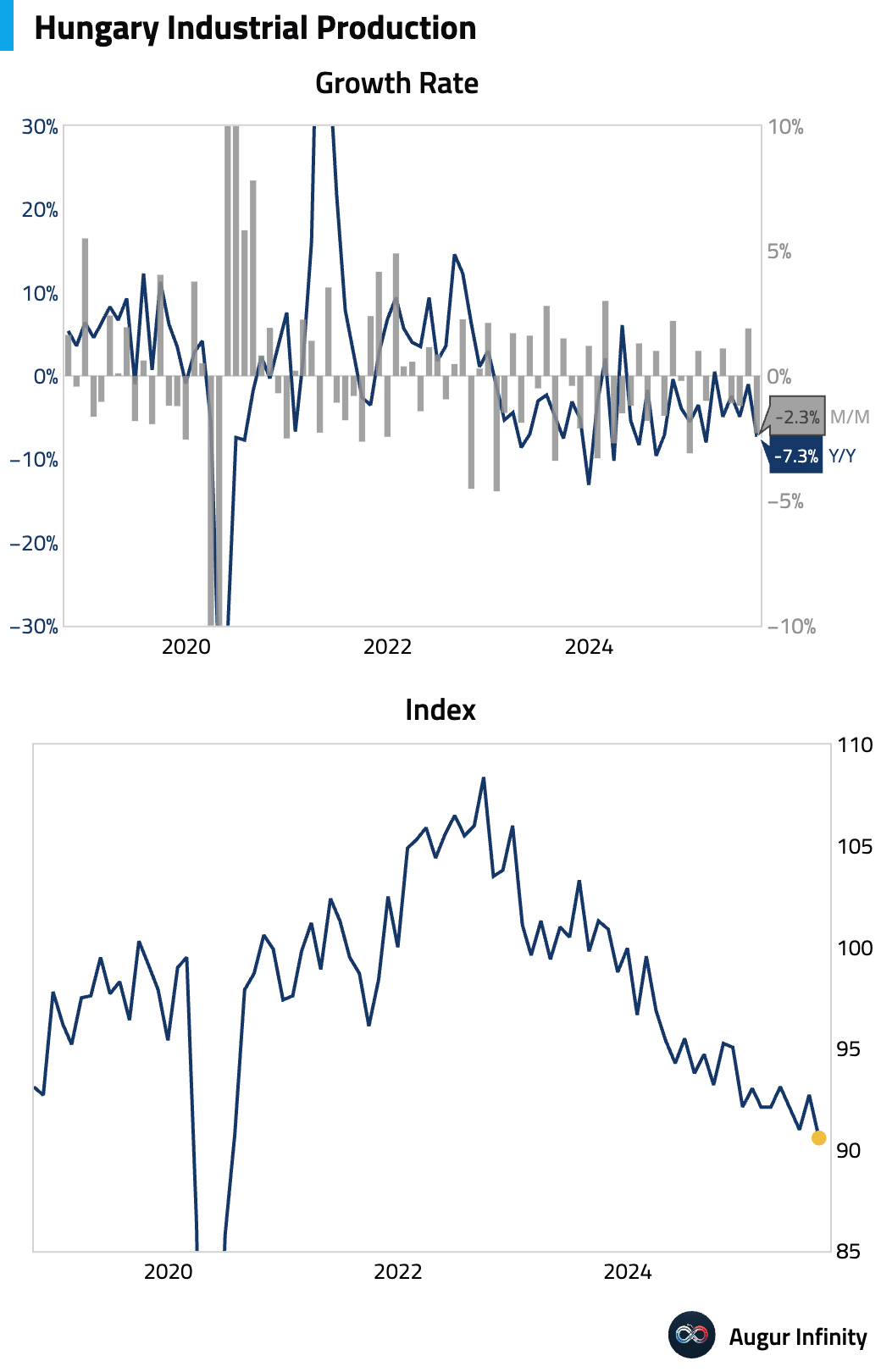
- The Czech Republic posted a current account deficit in August (act: -€0.67B, prev: -€14.94B).
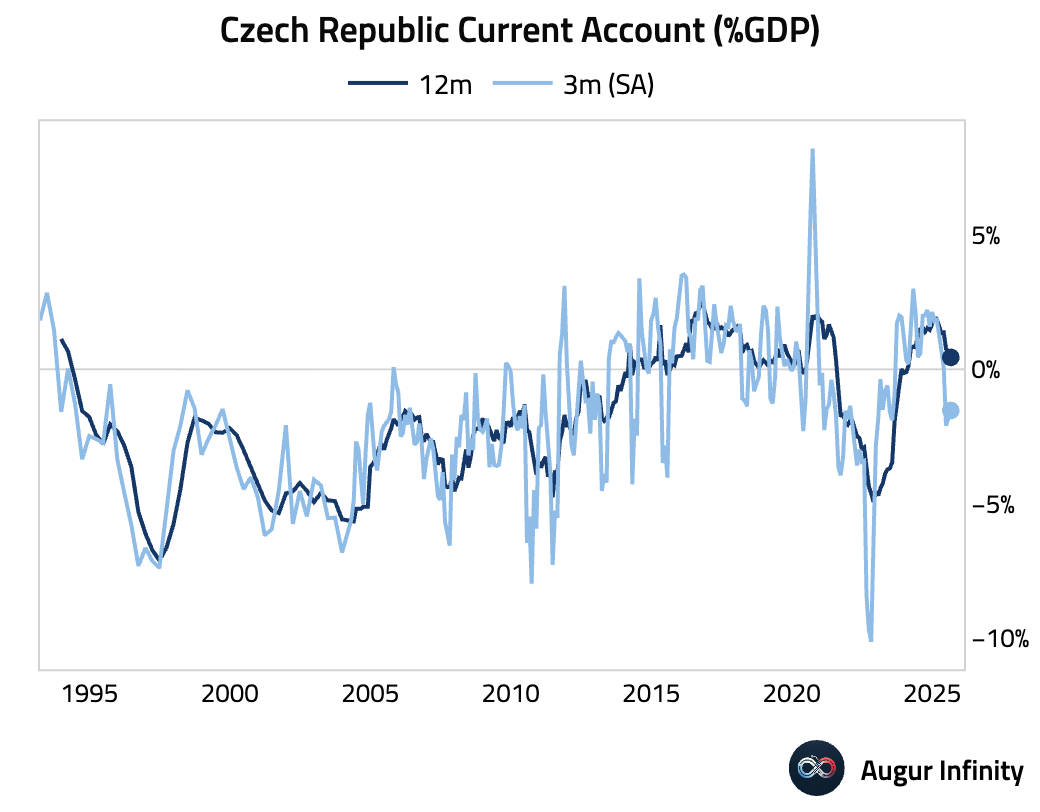
- South African mining production unexpectedly contracted in August.
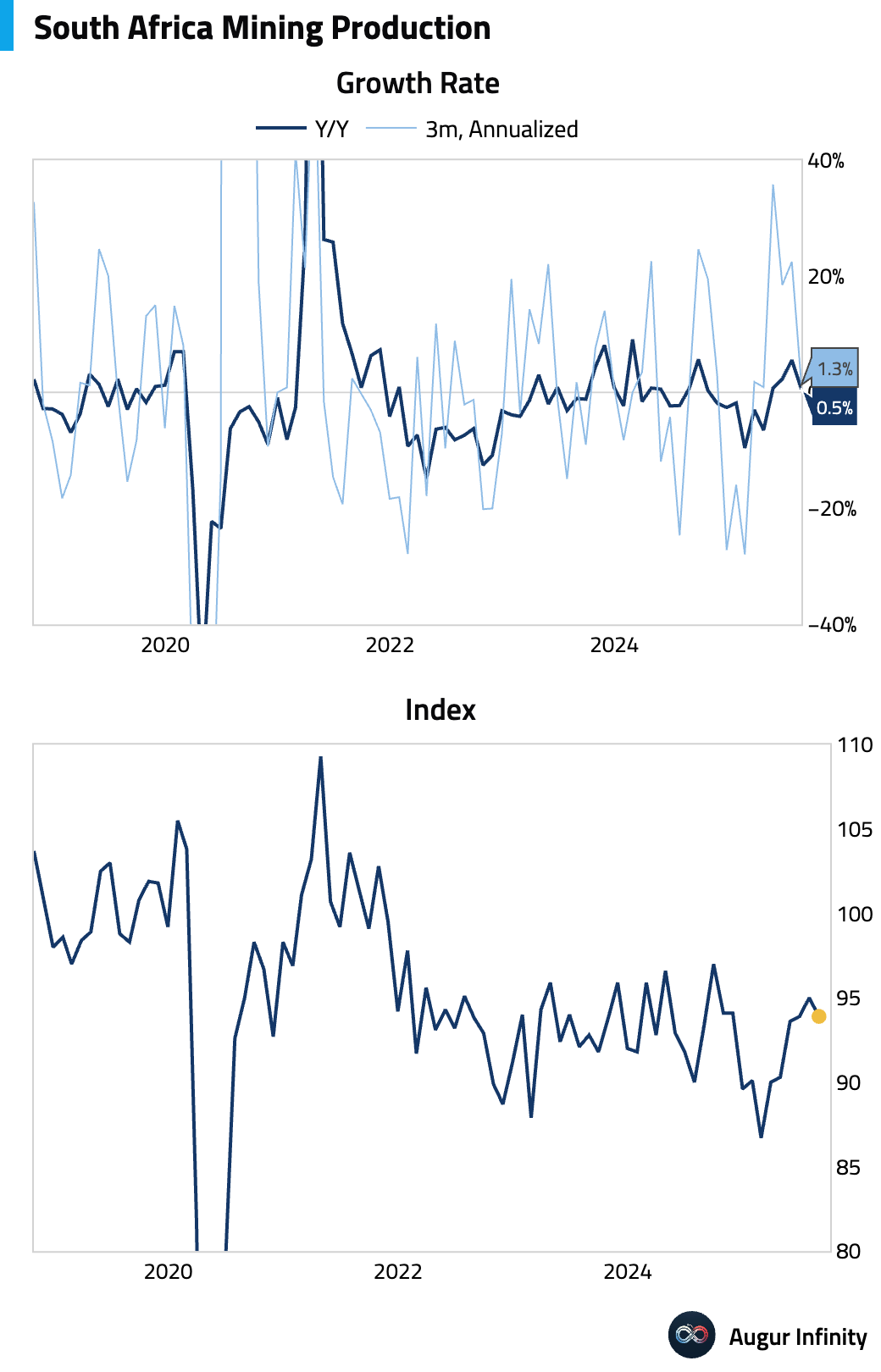
Gold production declined further in August.
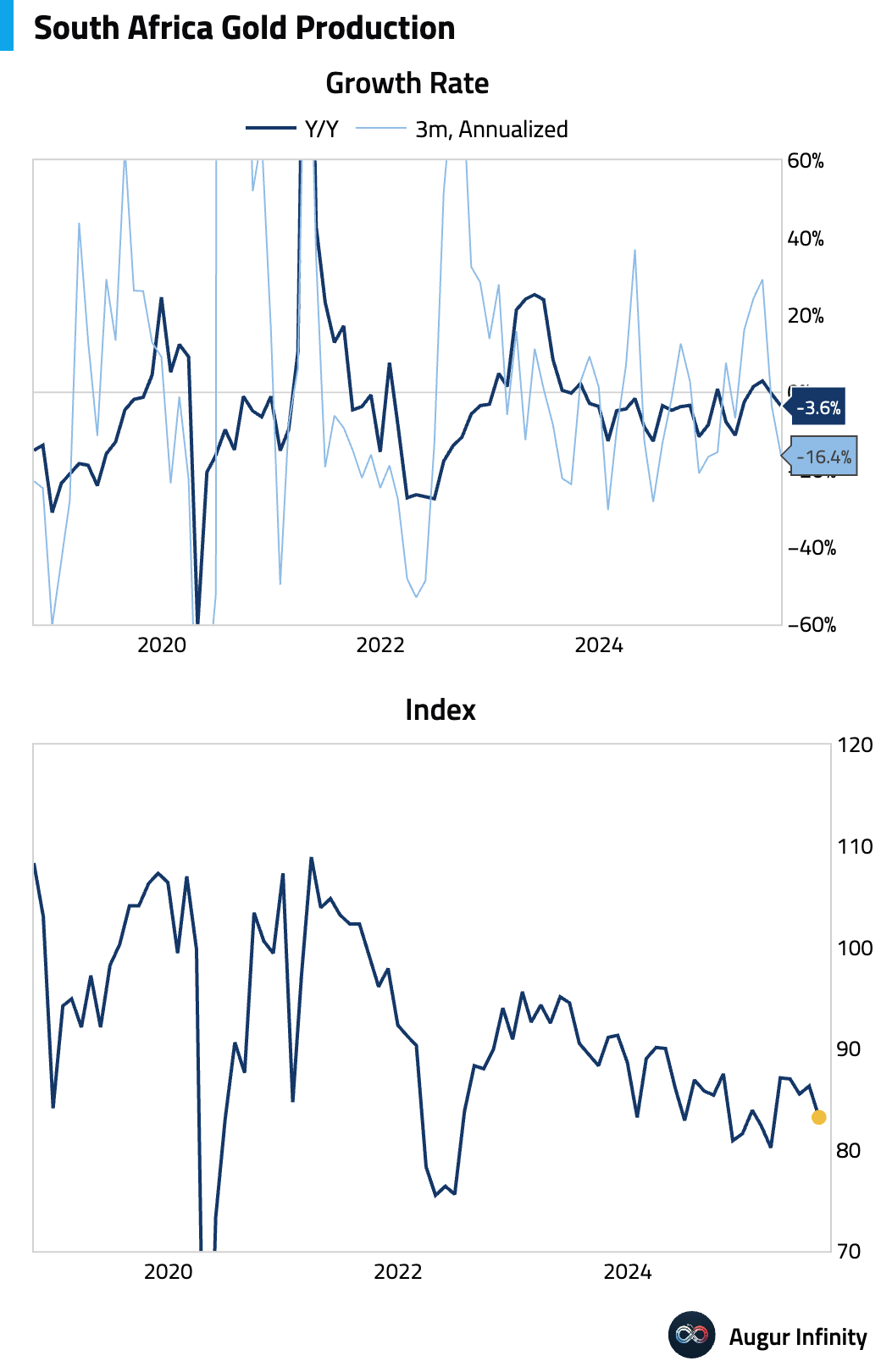
South African business confidence improved in September.
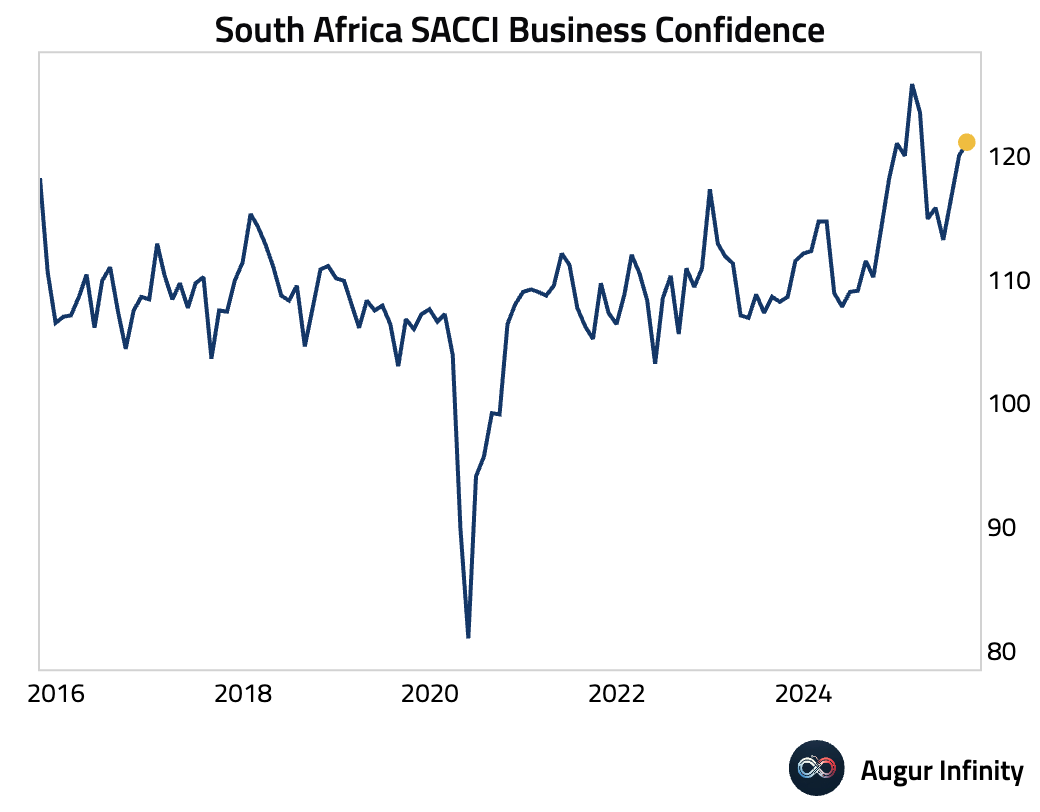
- Poland’s trade deficit widened in August (act: -€2.15B, prev: -€1.06B).
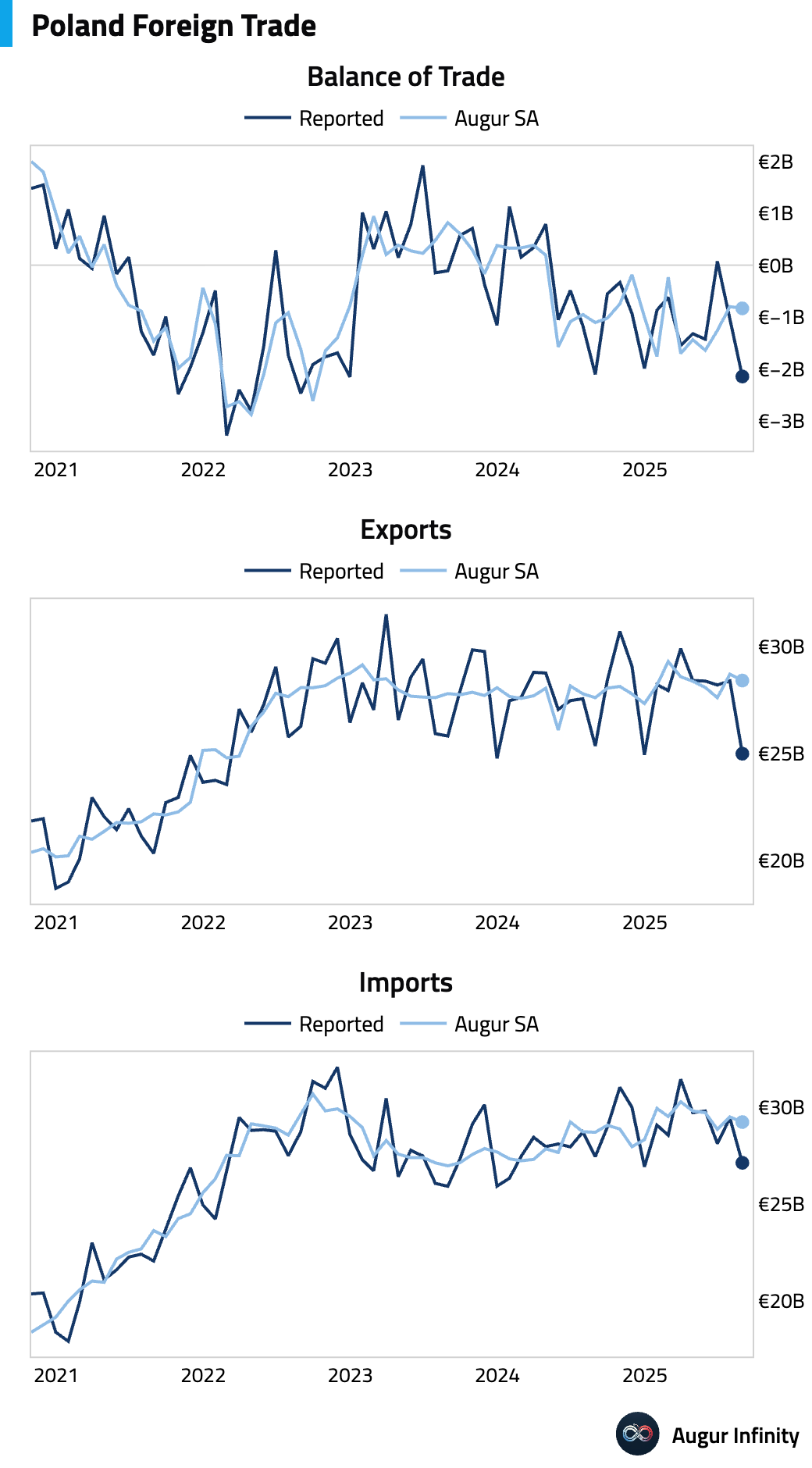
Poland’s current account deficit also widened significantly in August.
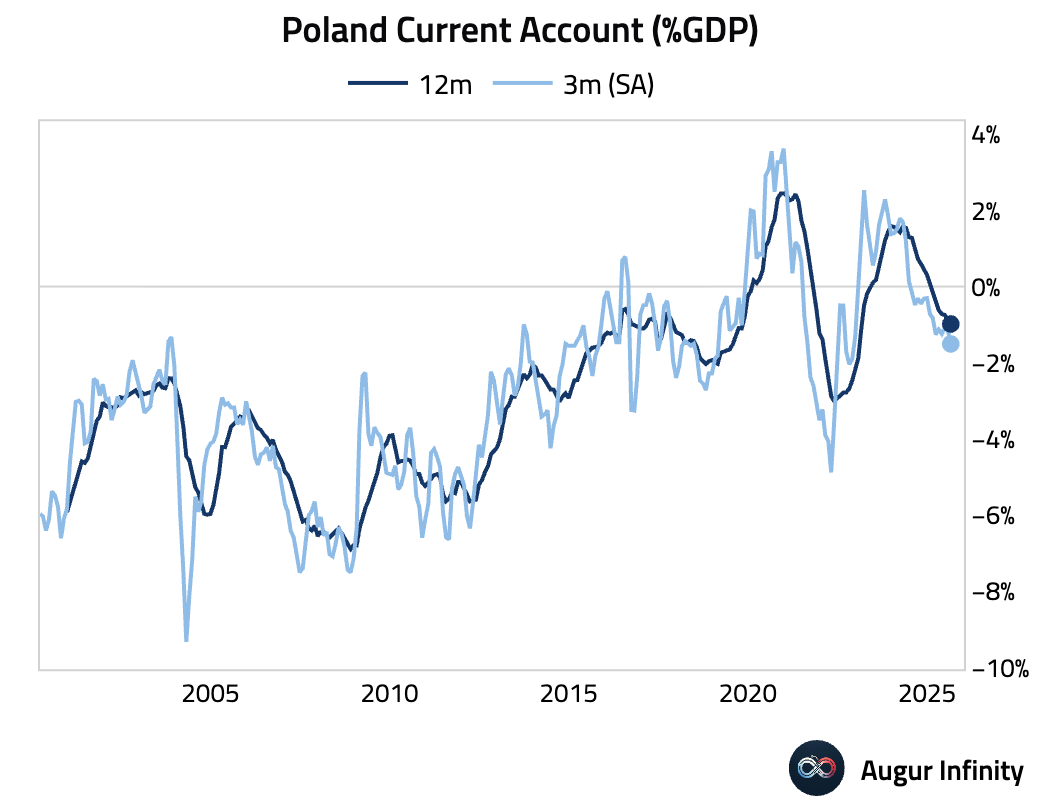
Global Markets
Cross Asset
- The "Safe Portfolio" is handily outperforming the S&P 500 Index year-to-date.
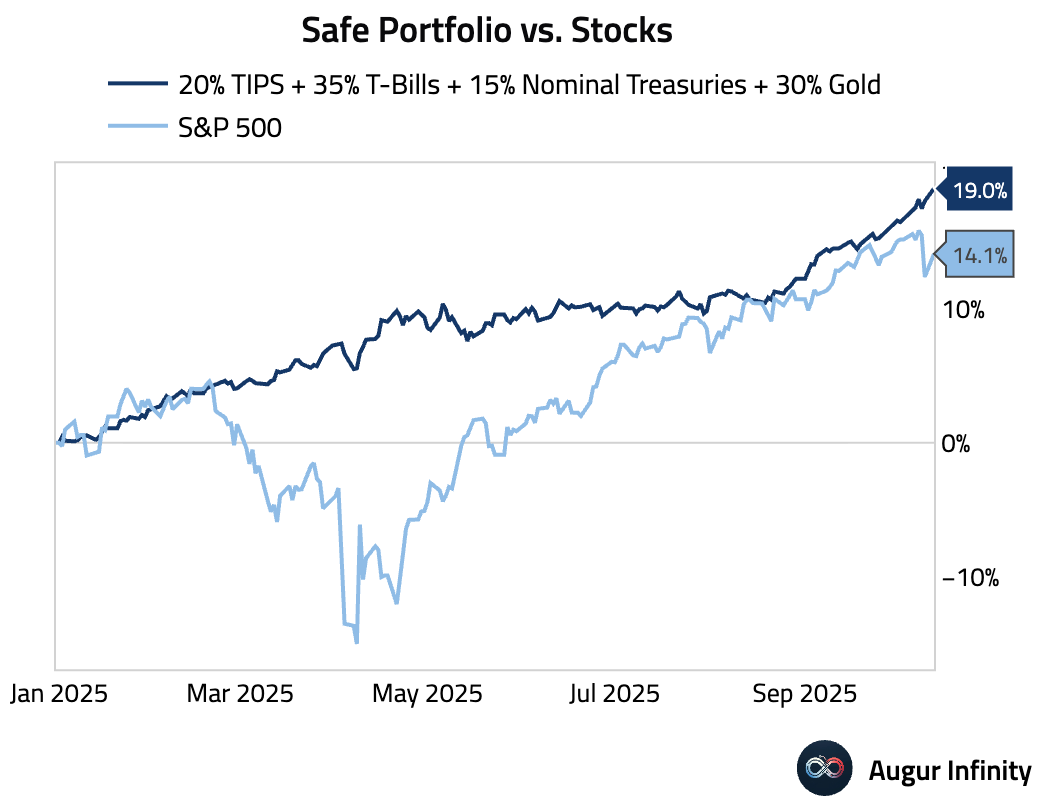
Equities
- Global equity markets were volatile amid escalating US–China trade tensions. US markets finished down slightly, with the broad market down 0.1% while the Nasdaq Composite fell 0.8%. In Europe, French equities were a notable outperformer, rising 1.9%, while emerging markets declined 0.5%.
- S&P 500 Utilities has reached the 18th all-time high of 2025.
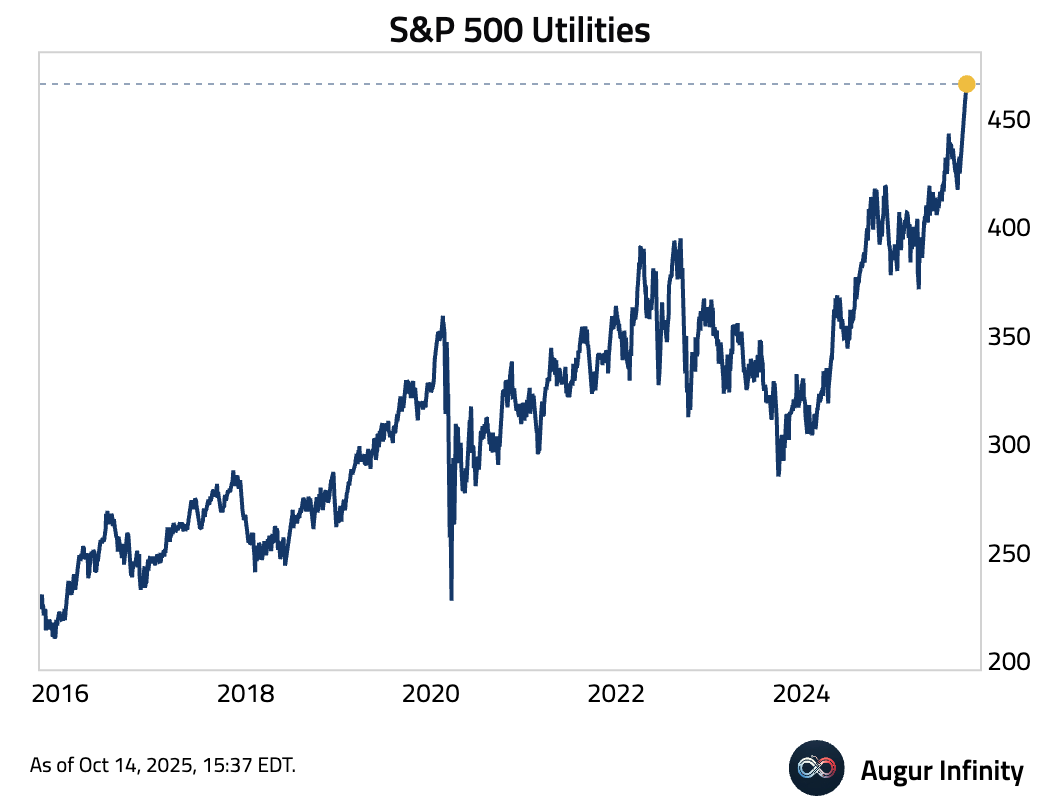
- Australian rare earth stocks rallied as escalating US-China tensions reignited investor interest in strategic minerals.
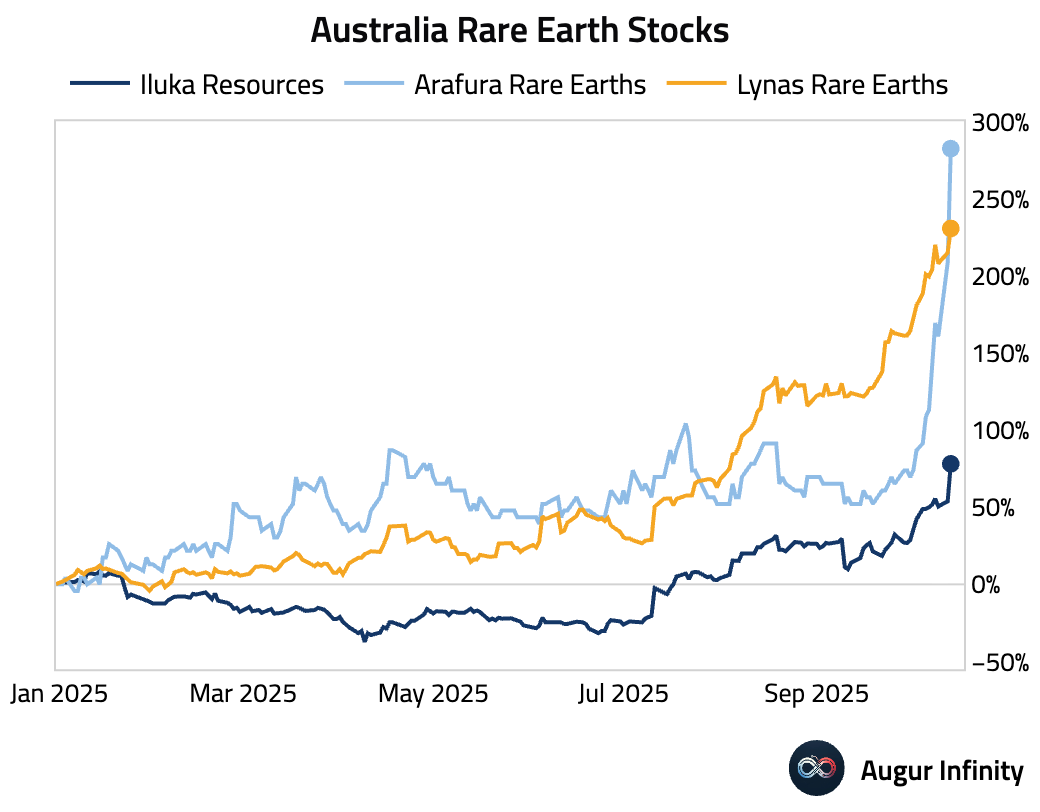
- The TOPIX Index declined by 1.99%, the worst 1-day return since April.
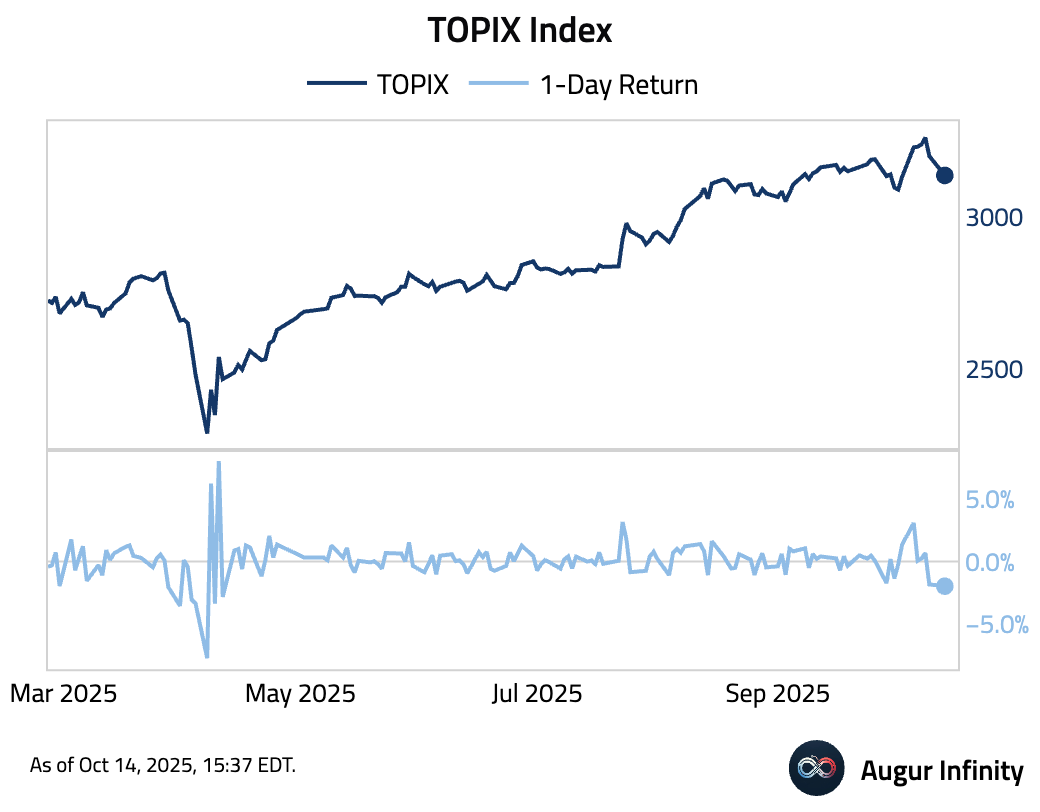
- Hang Seng Index fell below its 50-day moving average.
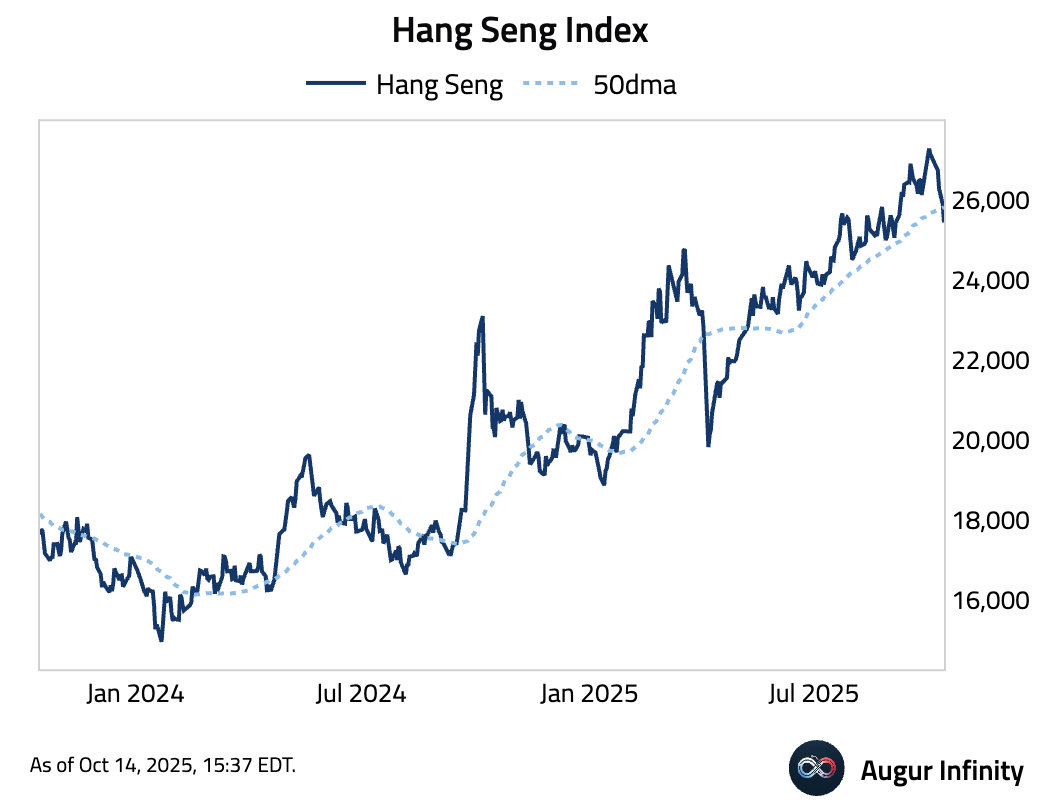
- Borsa Istanbul 100 Index fell for the fifth consecutive session …
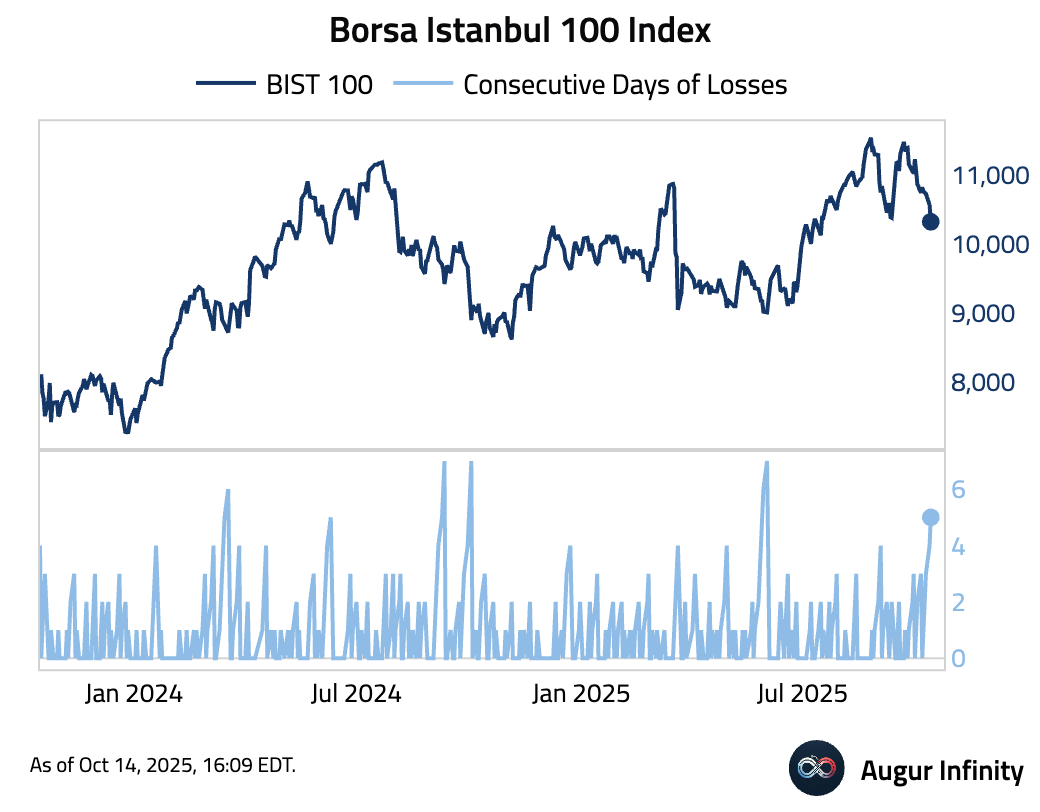
… and entered a correction.
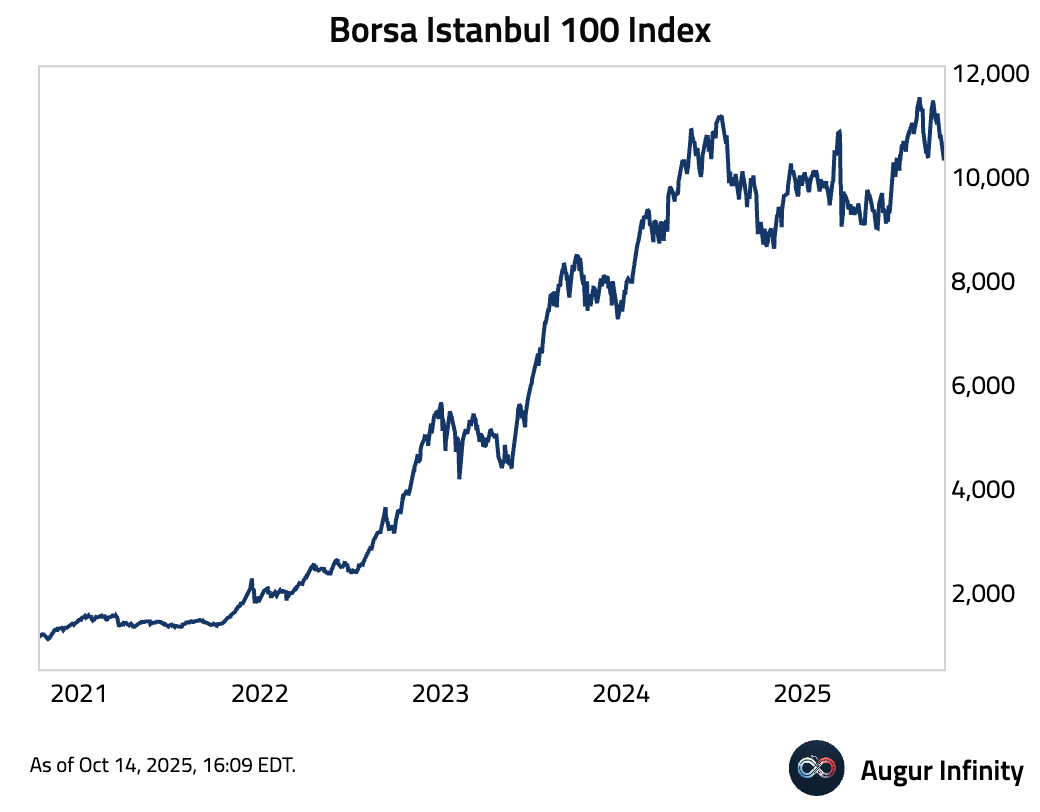
Fixed Income
- US Treasury yields fell across the curve, with the move led by the front end. The 2-year yield dropped 4.5 bps, while the 10- and 30-year yields declined by 3.0 bps and 1.5 bps, respectively.
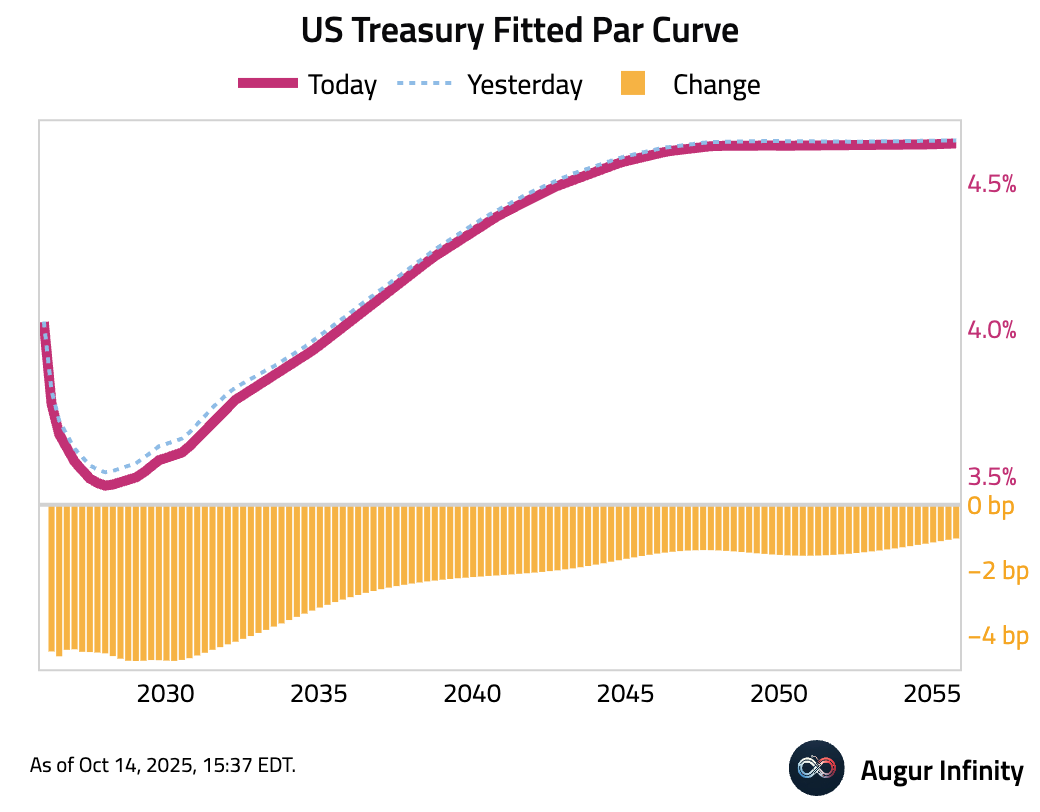
- UK 10-year yield fell below its 200-day moving average …
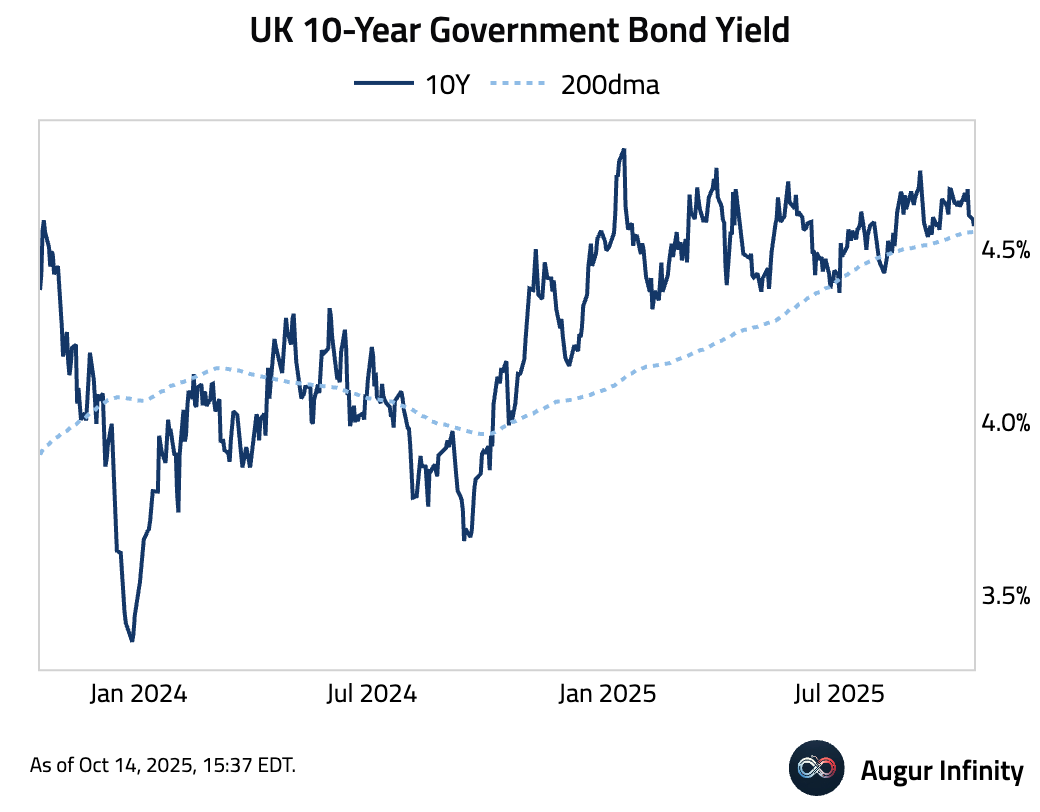
… so did Germany's 10-year yield.
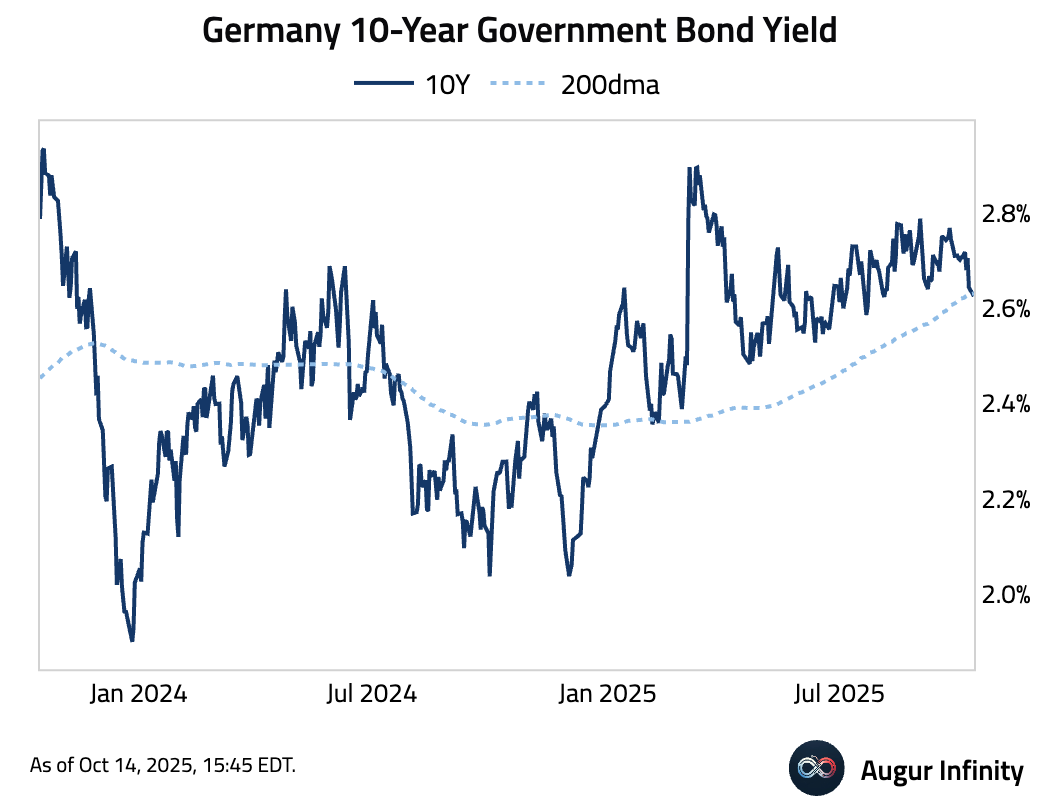
FX
- The performance of Norwegian Kroner against USD over the past five days is the worst since April.
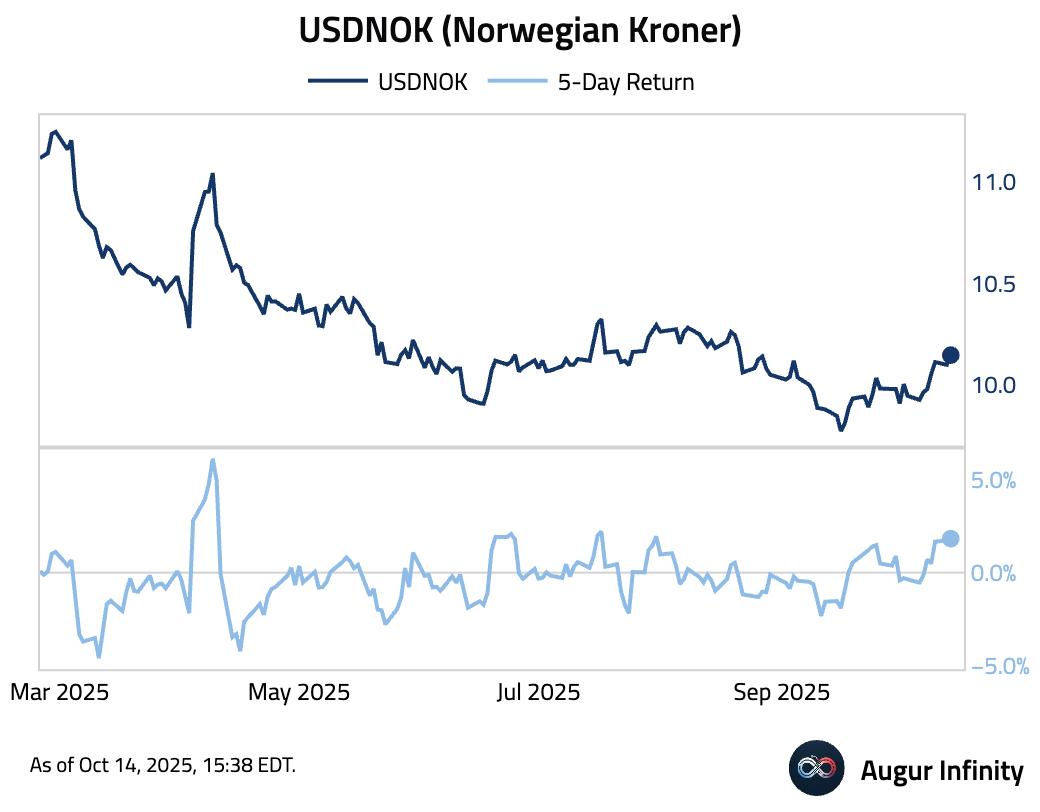
- USDBRL climbed above its 100-day moving average.
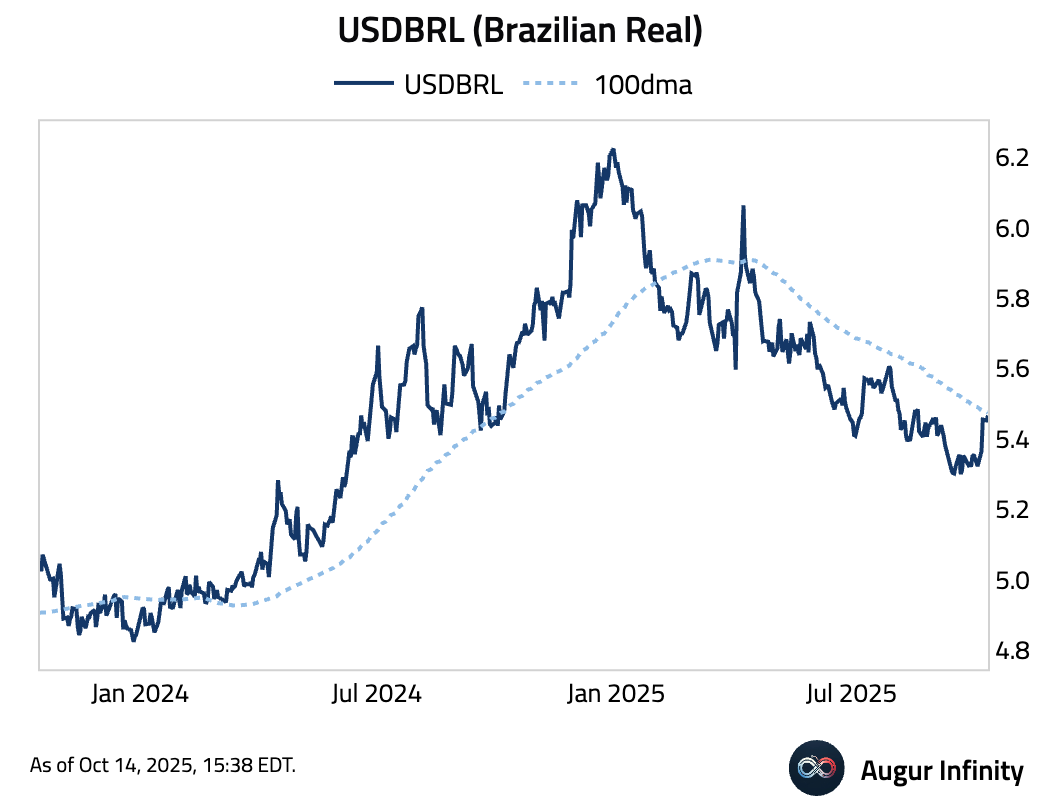
- USDMXN rose above its 50-day moving average.
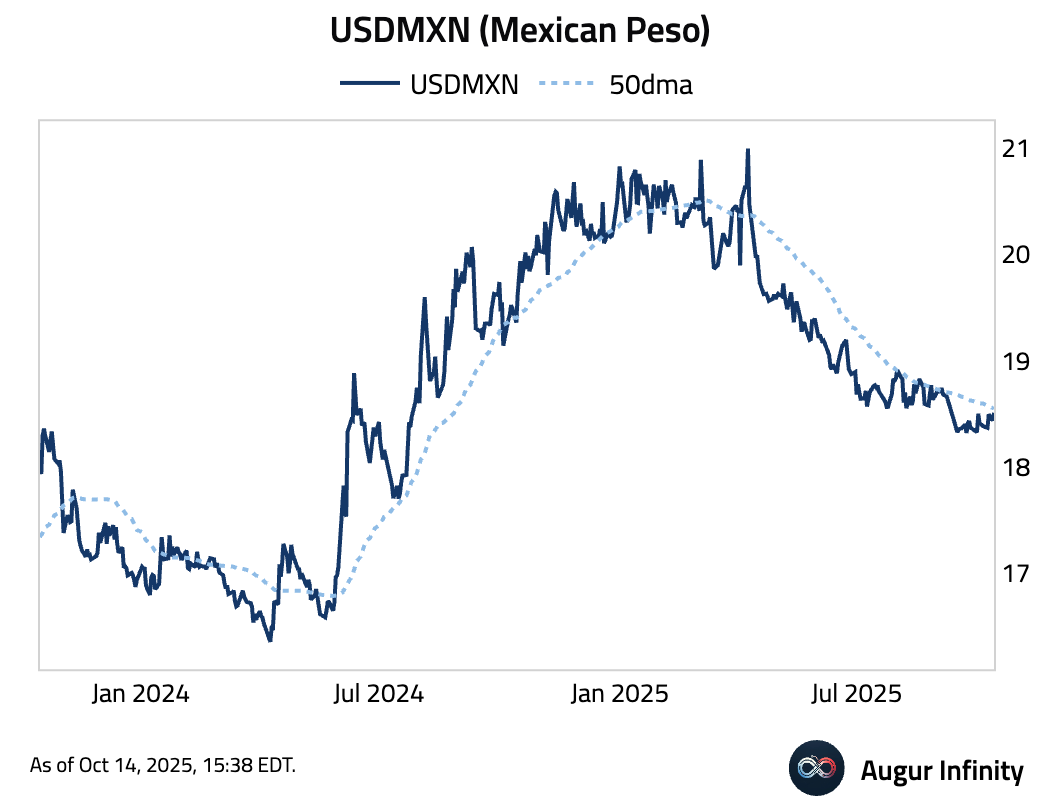
- USDCNY also moved above its 50-day moving average.
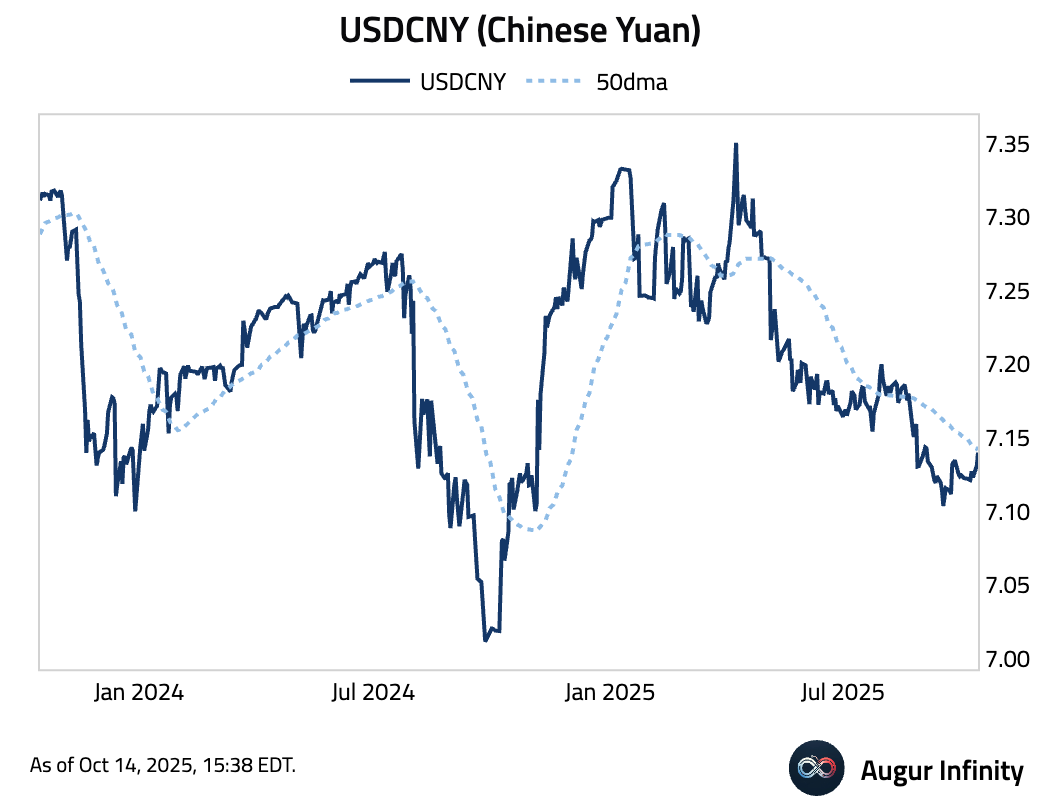
- Safe-haven currencies strengthened against the US dollar amid rising trade frictions, with the Swiss franc gaining 0.5% and the Japanese yen rising 0.4% for its third consecutive daily advance. Conversely, commodity-linked currencies weakened, with the Australian and New Zealand dollars extending their losing streaks to six straight sessions. The euro also firmed, rising 0.4%.
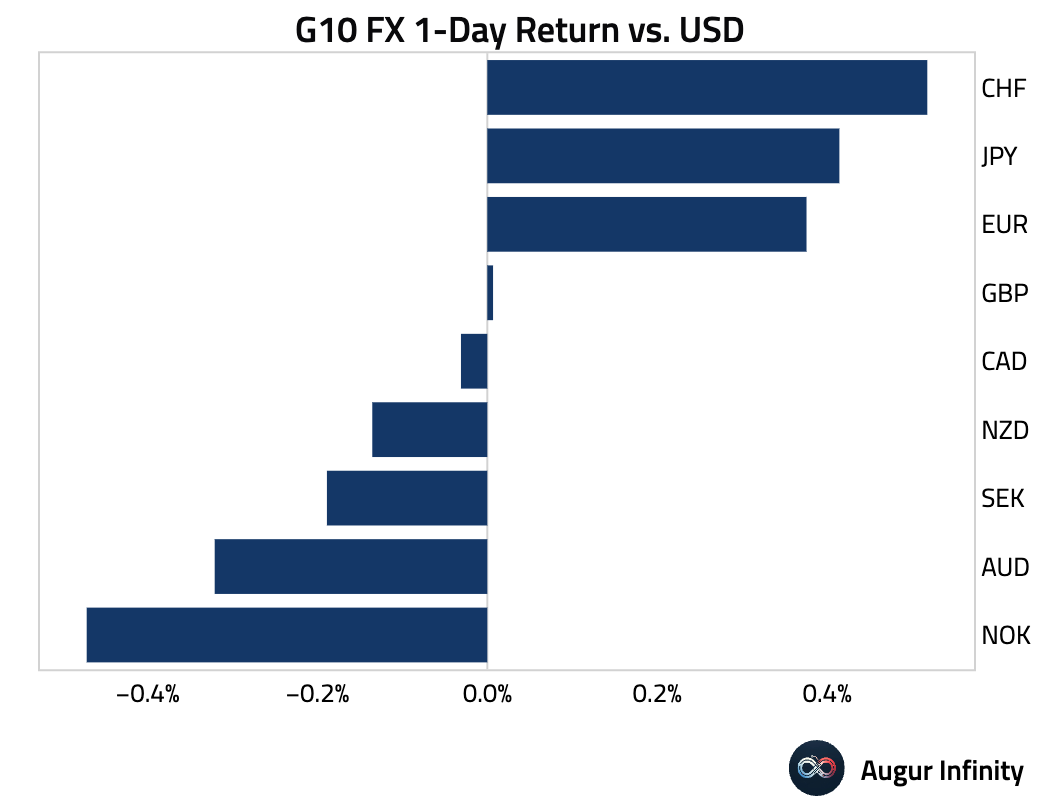
Commodities
- Gold futures have reached yet another all-time high.
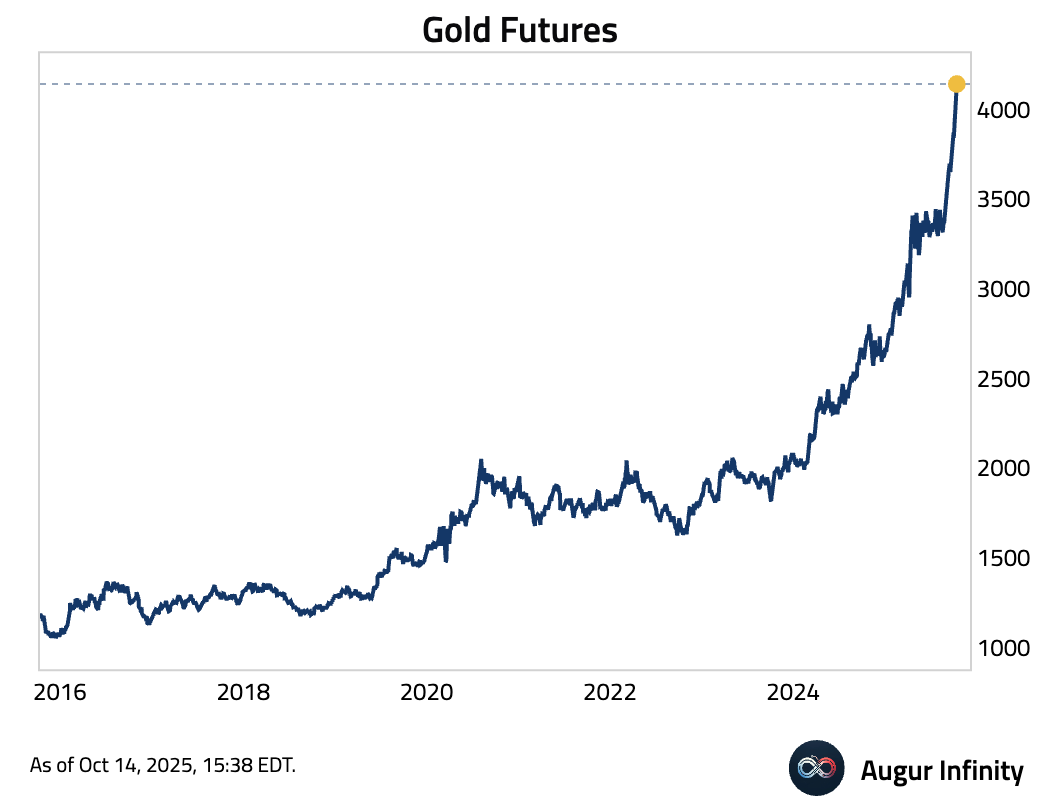
Gold has reached all-time highs 47 times this year already, the best performance since 1979.
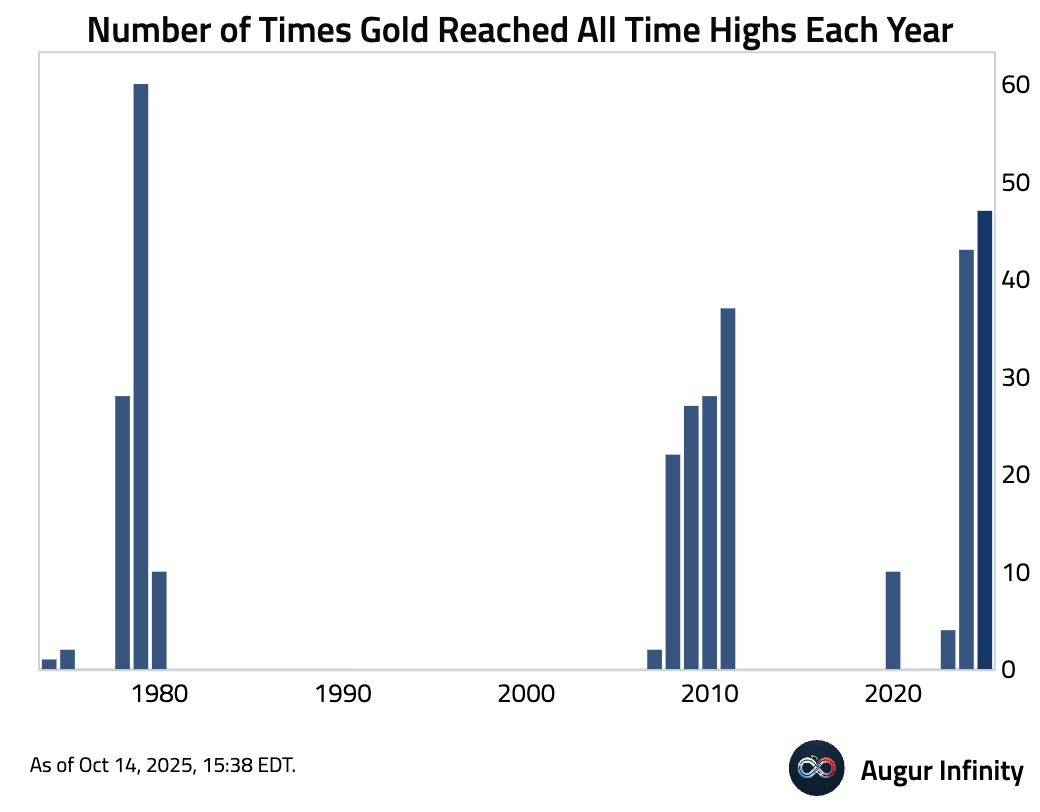
- Palladium continues to advance.
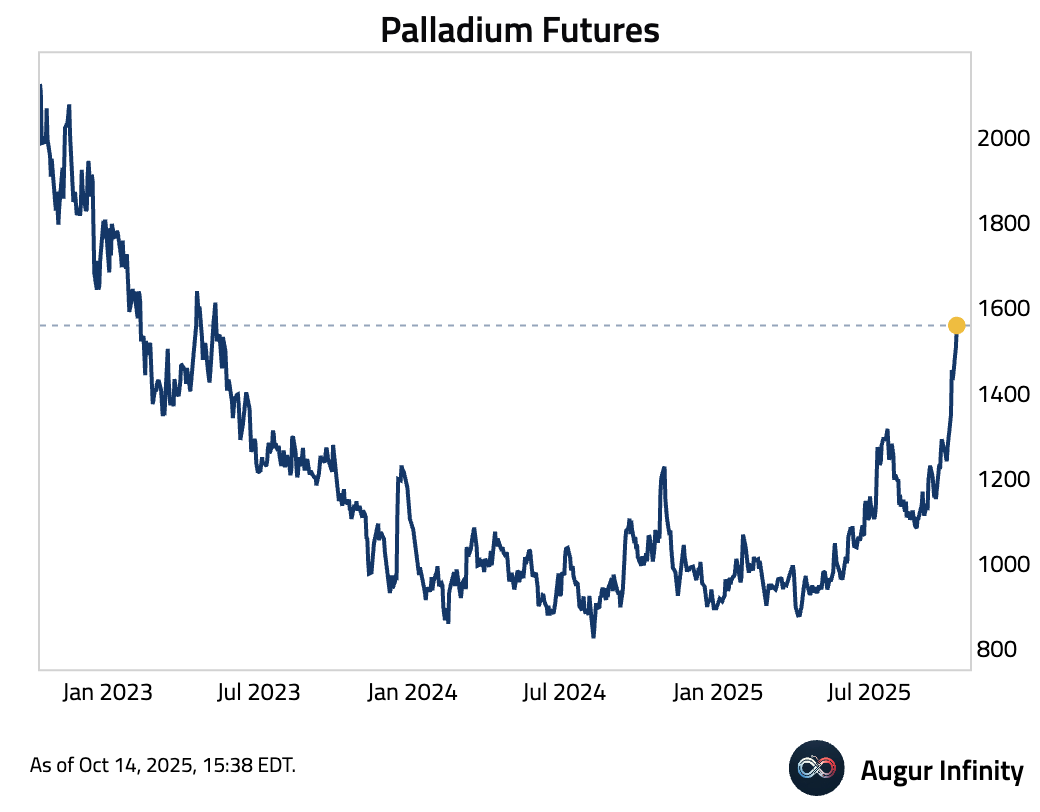
- Natural gas fell for the fifth day.
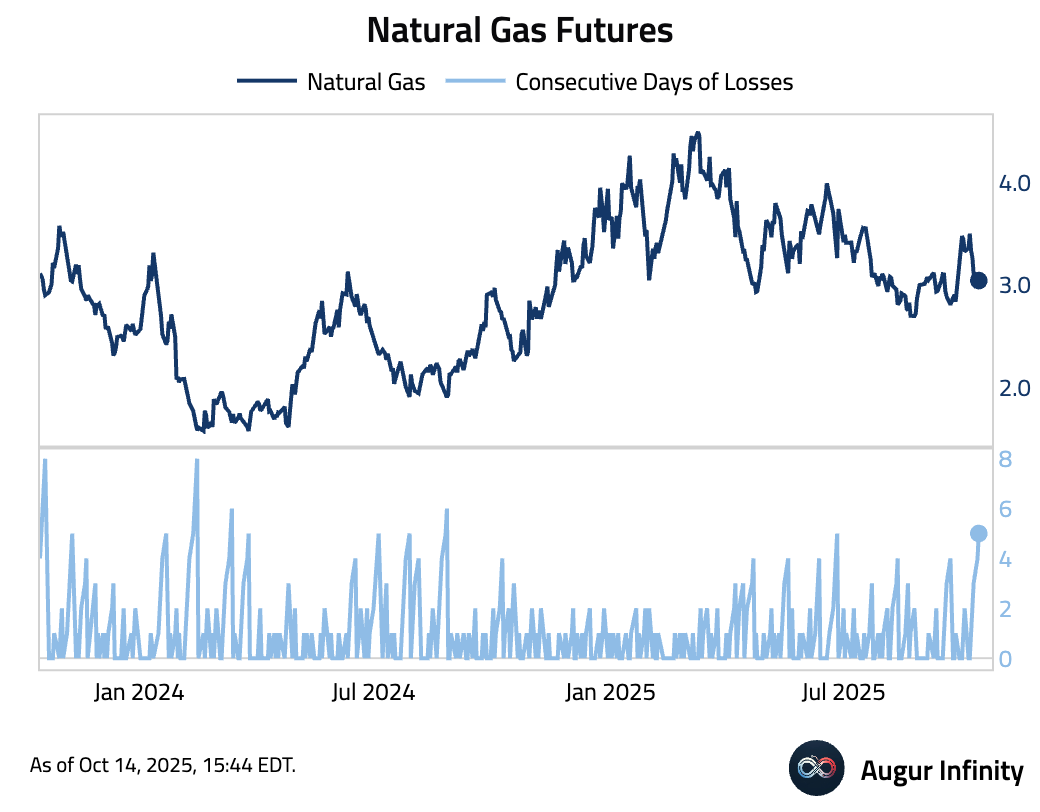
- Brent Crude is at the lowest level since June.
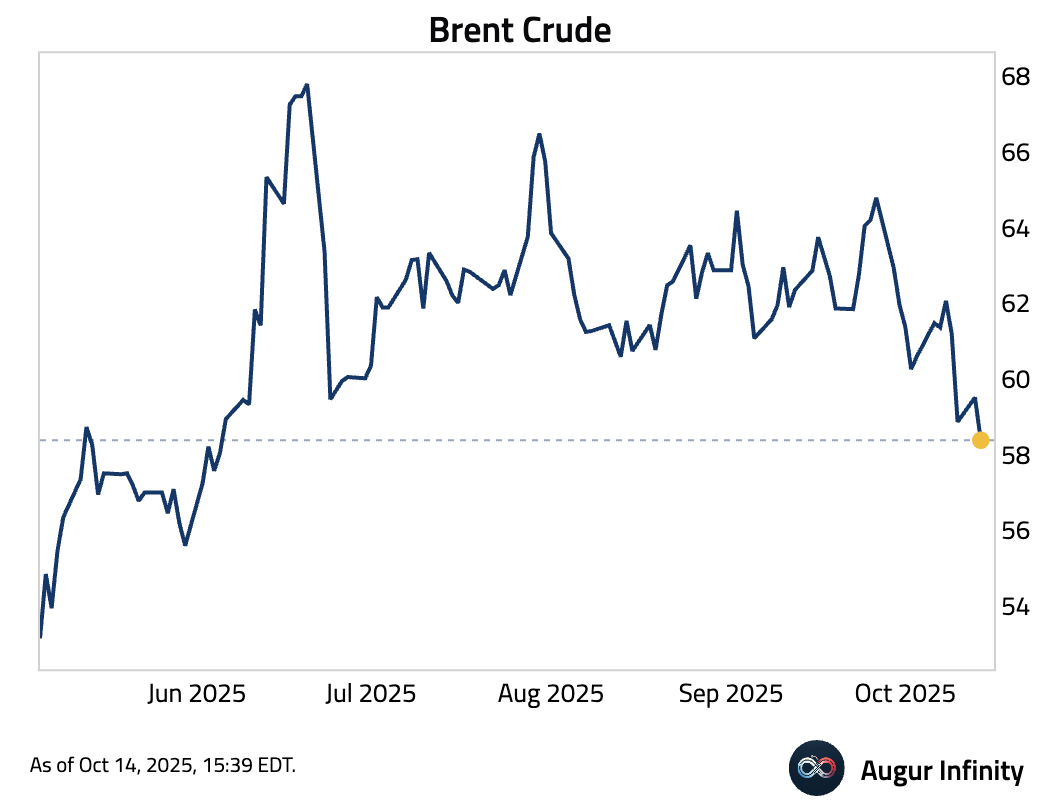
- Zinc has rallied off the lows, but is still on pace for one of it's worst days since November 2024.
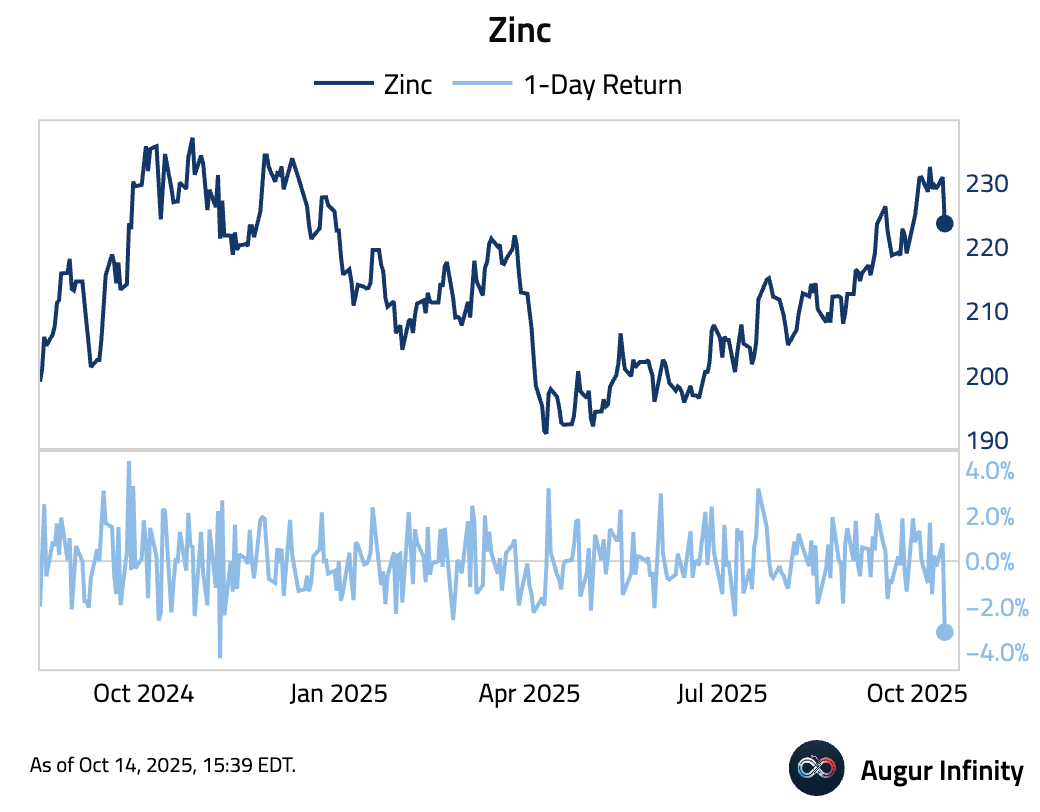
Disclaimer
Augur Digest is an automatically generated newsletter edited by humans. It may contain inaccuracies and is not investment advice. Augur Labs LLC will not accept liability for any loss or damage as a result of your reliance on the information contained in the newsletter.

